-
2020-03-15
My experience living during COVID 19 was unforeseen. It was my senior year of high school during the year of 2020 when I first heard of the term "Coronavirus." Being a student athlete at this stage of my life, I was looking forward to several upcoming events, such as Prom, my last outdoor track and field season competing as a distance runner, and graduation. When March 2020 arrived, everything came to an abrupt change for the worse. I suddenly found out that all of the current classes I was taking was forced to be online. The outdoor track and field season I was training for with my teammates and all of the goals that I set for myself were abandoned. The graduation I was looking forward to was held on a pre recorded video instead of a traditional in person setting.
What I have learned from the pandemic is that some things will not go as planned, no matter how much time and devotion goes into a particular event. Telling this story is important to me because it can let other future generations acknowledge what happened during these uncertain times and what things can be prevented from happening later on.
-
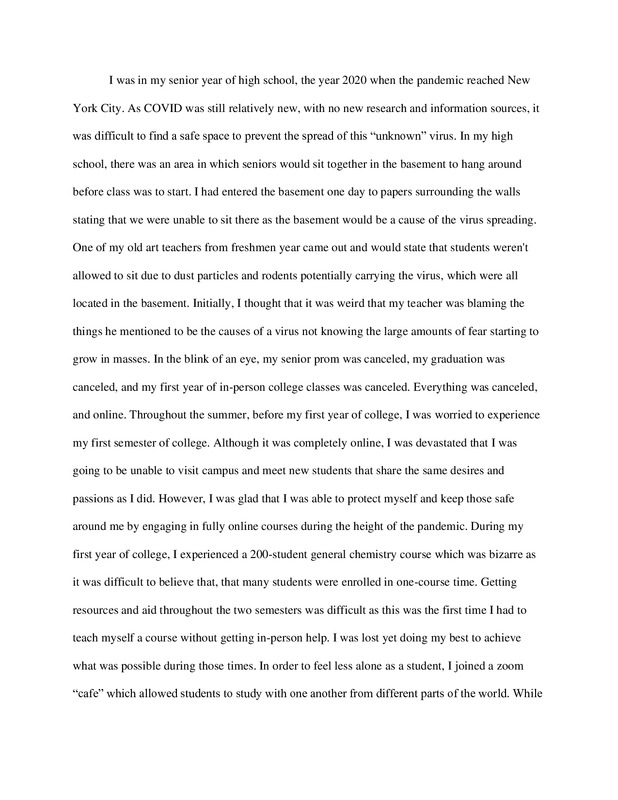
2020-08-05
The item that I am submitting describes my life as a student throughout my senior year of high school toward my first year of college. I emphasized the feeling of being alone and dealing with the college on a fully virtual level. As months passed it was important to validate the experience and the growth from being in an online setting to an in-person setting.
-
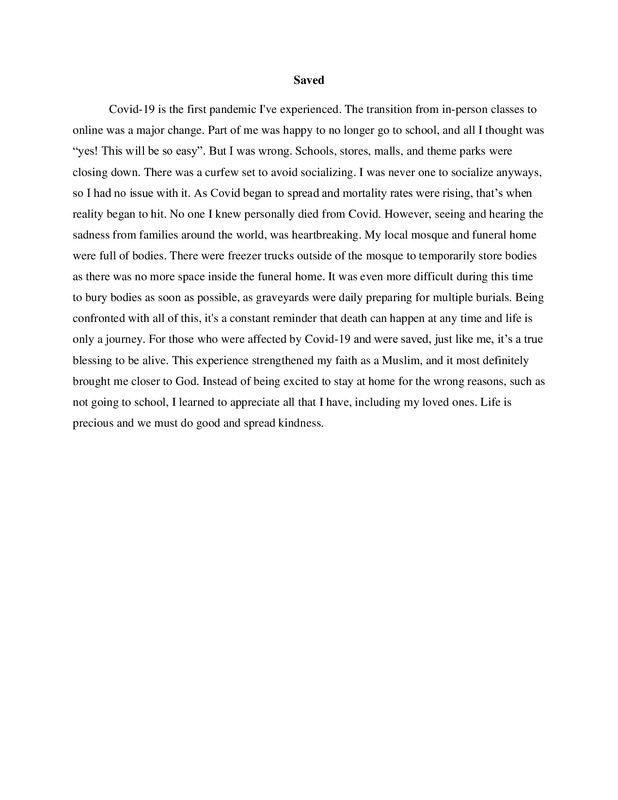
2020-04
The pandemic has not only been a devastating experience but a time of reflection.
-
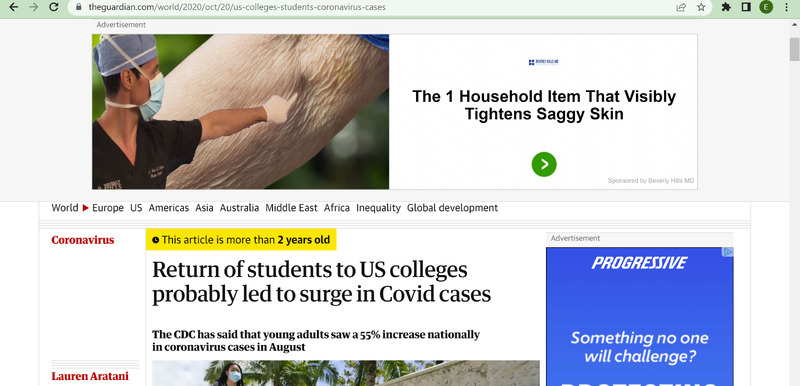
2020-10-20
Covid has affected everyone by the way you live your everyday life. Covid has affected New york city in many different ways , For example covid affected business to close down months including schools . Schools having to go remote . Another way New york city has been affected by the transit , The transit systems like the trains ,buses and commuter rail and ferries as a result to this the transportation has plummeted . For the subways in New York City it went down 90 percent and the buses went down 75 percent. The reason for this happening is people in quarantine and not going to work since some are working from home .
Covid has affected health care workers. For example health care workers like doctors and nurses are around people who have it so they are more prone to get it. .This pandemic caused a lot of changes in the world. It caused everyone to be less social and not go out as much as it caused us to wear masks everywhere. It also caused a lot of people mental and emotional health to go down. For example there’s been a lot of social isolation which caused families to not be able to see each other as often. COVID-19 has impacted social mobility on child care cost and for families school dropout rate has increased due to fear of getting Covid. COVID-19 especially affected families due to not having jobs or working from home or being put on unemployment there’s been a big impact of Covid on families and family relationships creating a lot of tension and feeling depressed or not being united together.
These pandemic parts of the population in different situations continue to affect people living in poverty situations with older people and disabilities. A lot of people have been put on unemployment and not being able to pay the rent. Covid has caused a lot of deaths and people could not be able to bury their loved ones. During The beginning of the year when the Pandemic was occurring depending on the situation of others some people were probably affected mentally Health care was provided to those who really needed it due to people not being able to pay for it and The state of new york lost money as well , It affected relationships and people got help by going therapy and staying connected to people . This pandemic affected many people personally. Covid has affected everyone's plan including travel because there's been travel bans and going to the airport has a lot of restrictions. A Lot of businesses are closing down to this pandemic by not giving income . Due to health care a lot of pregnant women had very high dress levels that affected their pregnancy . Which caused health care workers to be very aware of what was going on . Their risking their own lives to help us and young teens and kids were not able to fully able to enjoy the success of completing in graduating either high school such as prom or etc.it affected everyone's life and still is . This has caused a lot of stress and tension but has allowed people to be stronger in a sense and to appreciate the little things in life . Covid 19 has caused many hardships including loss of jobs . Some questions that still remain on this subject would be , When are things going back to normal ?, When is the vaccine coming out to prevent this ? When will this end ?. A message of hope i would say is everything will get better with time. The productivity has been slow due to employment going down ,People losing jobs . my personal experience with covid has become a learning experience . For example this pandemic has showed me to not take things for granted .
-
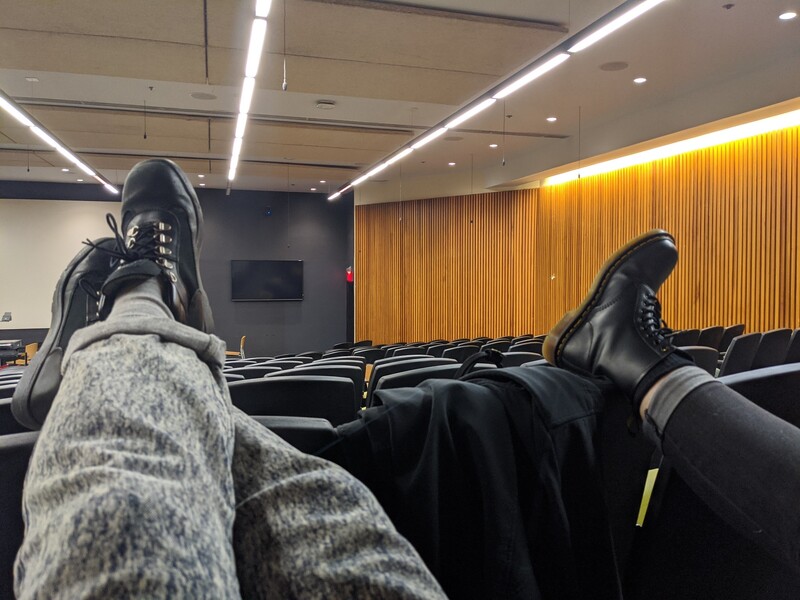
March 13, 2020
I worked/attended CUNY Hunter College during the start of the pandemic. On March 13, 2020, we were informed that we would not be returning to work until further notice, and I believe that a majority of late-night classes/activities were cancelled. As a result, my friend/coworker and I walked around the near-empty campus. We ended up sneaking into an empty lecture hall, ate some snacks, and chatted about the future. I took a photo of our feet up on the seats as a sort of fun memento, to show how crazy it looked to see ourselves amongst the empty hall, and when a coworker asked where we are, we sent them that. The photo meant almost nothing at the time and was just a casual photo I took amongst many in my every day. Looking back now, it holds nostalgia as well as dread. I think the emptiness shows what was to come, and how terrifying it would be, and just how impactful the pandemic was on our lives. I have not stepped foot in Hunter since then, so that was truly my last time being in that school. It makes me sad and makes me think what the future would have held had these events not happened.
-
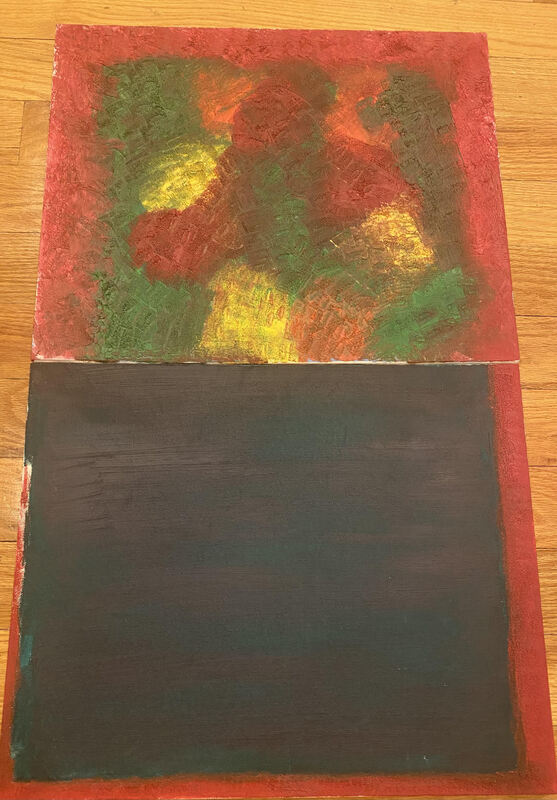
2022-03
Yesteryear is the product of pent up anxiety, confusion, loss, depression and hopelessness, painted in 2022. It is how I would describe life before and after Covid-19. Separated into two pieces the anterior canvas is multicolored, to represent the carefree state of life. It can represents the high points in my life pre-pandemic, inclusive of freedom and family. The oil protrudes in some parts and is flat in others signifying the highs and lows of everyday life. The posterior canvas is quite the opposite if viewed closely, some of the colors used in the painting above have been covered in dark colors. It is smooth to the touch. No high points in this instance. All lows. Dreary. Dark. The red bordering both , represents the vitality of human nature. At the top it was uncontrolled, bleeding into all other aspects of life pre-Covid. As it travels south, it becomes thinner, more rigid, more linear. It then starts to completely disappear and despair has taken its place.
-
2020-04-08
When the Covid-19 outbreak first started in New York, it was unfortunate that all of my family was positive. In March 2020, after someone in New York was diagnosed positive, my family did not want me to go out and during that time I was in high school and working part-time. My family including most relatives also started not to work and quarantined at home. One day, one of my aunts came to my house with a cold and a cough, but we didn't think much of it because she just got the flu shot so we figured it might be the aftermath of the shot. After two or three days, we started to have different symptoms. I remember I started with a sore throat, a headache, a fever, and then lost my sense of taste and smell. My relatives also showed different degrees of symptoms, and my grandma had the most severe symptoms. She first had a sore throat, a cold, and a low-grade fever, and then she kept having diarrhea and couldn't eat which caused her to lose almost 10 pounds in just one week. During that time, one of my aunts came to take care of my grandma. Throughout the duration of my grandma being ill my aunt was running on only a few hours of sleep per day since she had to keep an eye over my grandma. I remember that the hospitals in New York were full at that time, many patients died without receiving treatment, and refrigerated trucks were parked outside the hospital to store the dead bodies of patients. The TV news also showed that many people were protesting against the announcement of masks being mandatory when going out. None of them believed that Covid-19 would be serious enough to kill people, and this frustrated me, making me feel the urge to express my feelings towards how serious this virus is. I saw that my grandma's condition was getting worse and worse. We also thought about calling an ambulance to take her to the hospital, but we were afraid that we would not get treatment and we would not be able to visit the hospital. We felt very hopeless. We were on the last straw, thus we were all discussing that if grandma didn't show any signs of improvement the next day, our last resort is to have my grandma sent to the hospital. As a result, the following day, my grandma started to eat and did not continue to have a fever, and her condition began to improve. Overall, Covid-19 has brought my family a lot of distress and I am glad that Covid-19 has started to settle and everything is slowly getting back to normal again.
-
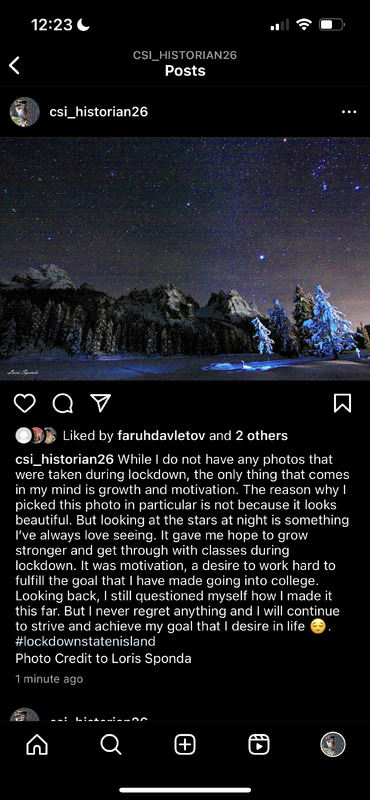
2020-03-11
The lockdown gave me motivation like looking at the stars
-
2021-09-24
September 24th 2021. It was just another normal day in the new pandemic experience, most of my day was spent on Zoom doing online classes for about four hours of the day. Today was different because I had an orthodontist appointment to finally have my braces removed after about 2.5 years of them on. As almost everyone else, I was finally excited to have my braces taken off and actually see my new smile. So after my 2 classes my mom drove me to the orthodontist and left me in the office to go run other errands. After leaving to do so, I had gotten my braces remove in what was really fast time compared to what I had envisioned. So when I had finished up and scheduled a future appointment for my retainer fitting I called my mom to see when she was going to pick me up and no response. I left a message and then called my dad. Again no response. I texted him and he said, “(Name) come home by bus. Mom had to go” I didn’t think much of it so I took the bus home. After I got home I called out in the house and had no response so I walked in normally, taking off my shoes and sweater. I walked into my parents bedroom and seen my parents on the bed. My mom almost curled up teary eyed and tissues next to her. My dad sitting on the edge of the bed next to her holding the tissue box. Obviously with the circumstances of that time, my heart sunk thinking someone died. COVID-19 is known to be fairly hard on the geriatric population so when my grandma from my mothers side had gotten it the night before, we were all on edge. My mom didn’t say a word, so my dad took me outside the room and said something. I still to this day can’t recall what he was saying and I just walked away. To this day I’ve been afraid to ask of the specifics, all I know was that she was alone in the hospital because of the country she was in had strict hospital visitation policies. I still don’t know how to deal with these emotions because honestly she was the person I loved the most second to my mother. She helped raise me and made me into the man I am today.
Thank You وداد
-
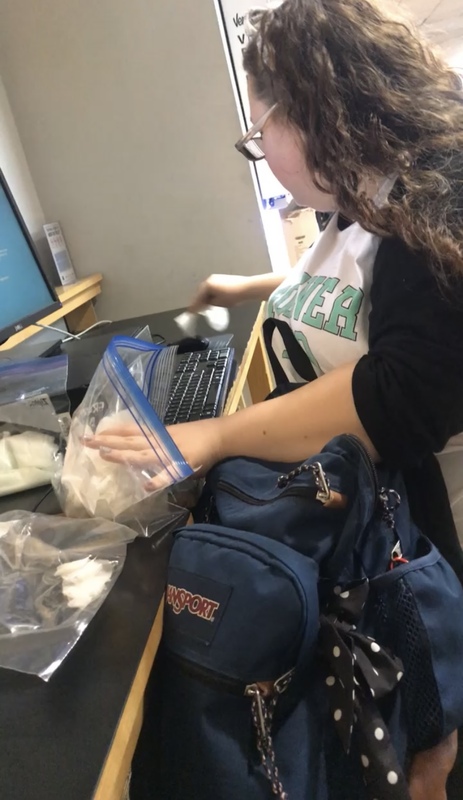
2020-03-11
I took this photo of my friend, Sarah, cleaning everything she would be touching in March of 2020, the same day CUNY announced they would be closing due to COVID-19. I remember thinking she was silly for her paranoia. I was in denial that anything was really happening, and I think that was me trying to keep myself calm in all of the uncertainty of what was going to be happening. Looking back, Sarah was valid in her fears of this virus. The seriousness of the situation did not hit me until the announcement of the closure of CUNY schools.
-
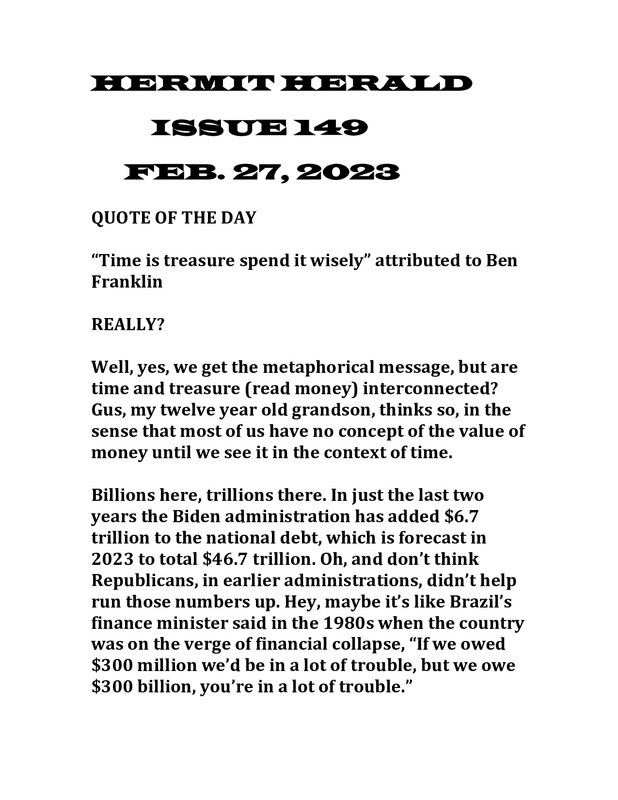
2023-02-27
what is a trillion
-
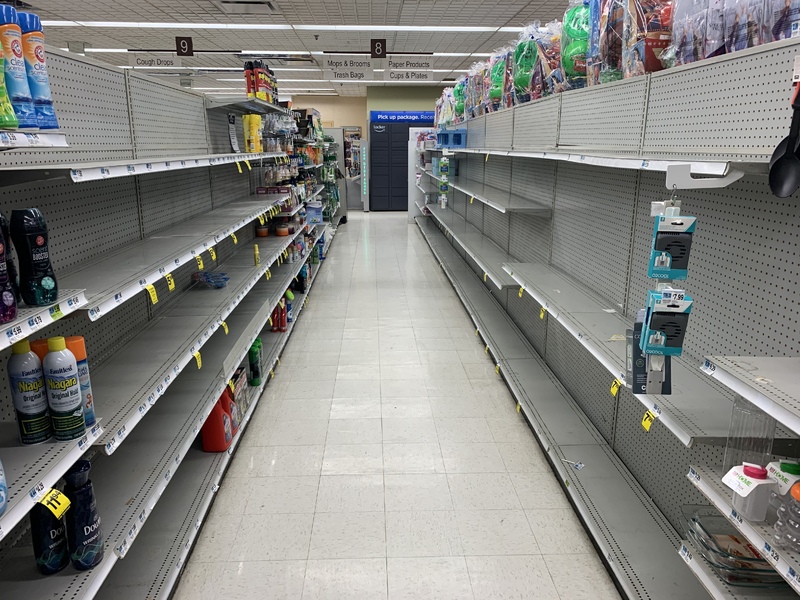
March 2020
As I remember now, around mid of March 2020 my undergrad school pushed all students and faculty to an immediate break while college administration had figured out the transforming in-person classes into online ones. Meanwhile, I was thrown into a new reality of Covid19 lockdown in NYC. As a part of it, there were empty shelves in supermarkets and grocery stores. On the first days of the officially declared lockdown, supermarkets became rapidly overcrowded by New York residents who had to rush to buy essential food supplies that could be preserved for a long time. The atmosphere of common panic at the beginning of the pandemic and lockdown seemed to be everywhere in New York. Hence, supermarket shelves naturally turned to be aisles with wiped-out shelves. Besides the essential foods, toilet paper and disinfection items (sanitizers and wipes) also run out with the speed of light. During the lockdown times, I remember challenges in finding these sanitizing wipes and sanitizers in the stores which were extremely needed. I made a joke once in my conversation with a store employee that I would have a time machine to travel to the recent past and buy all needed things and return. Supermarkets’ management decided to limit the sales items to avoid the absolute lack of necessary products in their stores. I could never imagine seeing such a lack of necessary food products in an economically advanced country like the US. In contrast, today and in pre-Covid times I did regularly head to do shopping in supermarkets, and I was able to view fully packed shelves and fridges with all types of various foods and products.
-
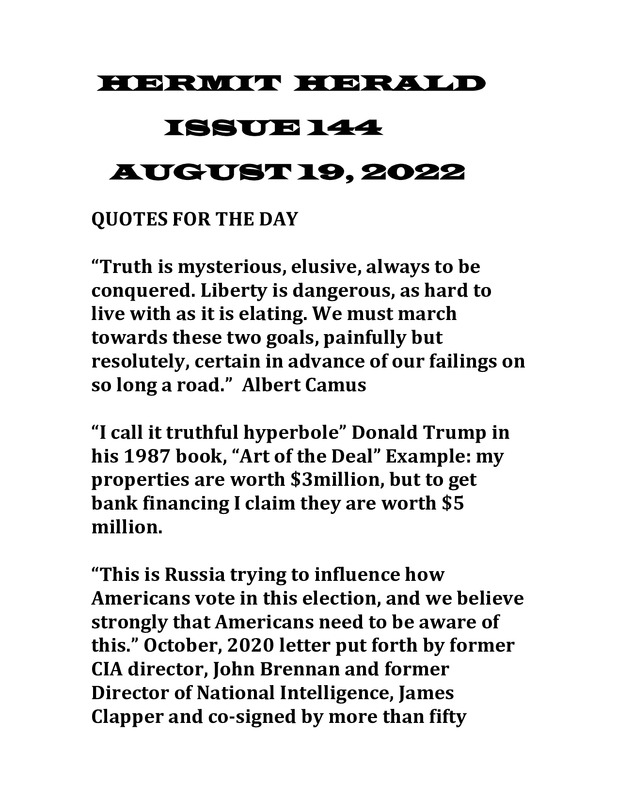
2022-08-19
TRUTH AND LIBERTY SUBJECTIVE
-
2020-03-06
My Junior year at Midwood High School took an expected turn as a national emergency was declared on March 13, 2020. I remember watching the news with my mother, excited to see I would have two weeks off from school. My mother and I would both be home as all non-essential businesses moved to remote or closed down indefinitely. I immediately messaged my friends about the two week break, planning to play video games all day long. We spent those two weeks staying up late as if it was an extended spring break. Little did I know that those two weeks would turn into months of isolation, living in fear of going into the outside world. I feared for my father as he was a registered nurse at Woodhull Hospital. Not only did he have to go outside everyday for work, but he would be face to face with patients, many sick and dying from this new virus that took the world by surprise. There was no vaccine for almost an entire year, so all he could rely on were masks, gloves, face shields and hair nets. My father and many other medical workers were needed overtime to deal with the immense amount of patients coming in everyday. As he came home from work my mother would bring his clothes and leave them by our front door. I worried for him at work as I feared he could get this virus that we were still learning about. Thankfully he never got sick with Covid-19 during the early pandemic, and with the new vaccines in development many of our fears were put to rest. After almost two months of not having any classes we were introduced to remote learning through zoom and google classroom. It was a very new experience for my fellow classmates and I, but it was nice not having to leave your bed to go to class for a while. However that relief of not waking up early to go to class turned into yearning to go to school and seeing my friends. Waking up every morning to see a screen filled with blank profile pictures with names made me feel very lonesome. I would never imagine missing going to school, but it was something that I had taken for granted. In my senior year of high school there was the option for hybrid learning which I was very excited about, but I'd later find out that there would only be rows of desks set up in my school gyms we used for physical education. It wouldn't be the everyday schedule of switching classes and seeing my friends in the hallways and library. I ended up doing another year of remote learning which was very draining but I managed to do well in all my classes with nothing else to do. Unfortunately I did not have a prom or senior trip, but I was very lucky to have an in person graduation and see all of the people I once saw everyday again. This story of the pandemic is very significant to me as it taught me to never take things for granted as everything can change in a moments notice. The things I'd known as my everyday routine of school and hanging out became a distant memory for a long time until numbers and fears of the virus fell. Being able to go to campus now and have a regular life again is something I will now cherish forever. It is still somewhat hard to socialize again after being isolated for so long, but I have made some friends along the way and I look forward to all the memories that await me in the future.
-
2020-04
During our everyday lives, we tend to lose so much of our time that we'd like to spend doing things we enjoy such as spending time with family or even just doing hobbies. For example, when you have to work all week you usually spend at least half your weekend catching up on personal chores. During the Covid-19 Pandemic, my family and I were able to get back some of the time we had been spending at school and work, we were able to spend time together instead. We were able to have movie nights, game nights, and meals at the table, and we just enjoyed being together overall. This is so important to me because I value every second I spend with my loved ones, and I was glad we really got a chance to bond during a very stressful time for everyone.
-

2020-03-24
My sister, Heidi, passed away in Washington, DC, on March 23, 2020. I wasn’t allowed to be with her when she died. My sister was my best friend. I was so lost. Her children, Significant other, my mother, her best friend, and I couldn’t have a funeral for her because of the rules put into place for Covid. So, we could not have a memorial for her till and year and four months later. At the same time, everything began to shut down. My husband works for the NYPD; I was terrified of him getting sick and losing him. Every day after he left for work, I would fall on the floor and break down in tears. I live next to a nursing home facility on Beach 119th St. in Rockaway Park. At this time, I would stare out my windows to look at the ocean to try to calm myself. For weeks, I would see out the right side of my windows and the ambulances and medical examiner vans showing up non-stop to the nursing home for ten days. Bodies were being taken out morning, noon, and night. The flashing red lights signaled that my mental health was in danger. I felt myself crashing many times. I was devasted. To this day, I carry so much internal trauma, I don’t know if I’ll ever recover. I hate this world and the cruel people in it. People have become so ugly because of Covid. I doubt I’ll ever be able to escape the mental anguish that lives in my soul...
-
2020-03-13
Maybe if quarantine lasts three weeks, we’ll have spring break before we go back to class, I wistfully think to myself.
It’s already March 13th of 2020, but the air is still nippy and my mom still makes me wear that atrocious parka. She’s been hearing all these reports about the coronavirus, and I think it’s releasing her inner germaphobe.
My school day finishes off like any other, except I have to stay behind for AP Biology review, like who has review two months before an exam? Following an hour full of practice problems, workbooks, and texting my friends under my desk, it’s finally time to go home. The talk of the school is if Xaverian plans on closing for quarantine, following the footsteps of nearly every other Catholic school in the city.
But I don’t even take two steps out of my desk before my iPad pings with an email. One by one, we all find out that Xaverian will be closed for the foreseeable future, and that online learning will commence on Monday. I picture using this new interface, Zoom, for class. A feeling of exhilaration grows in my chest. I can already picture it: no uniforms, and no restrictions—just a newfound capacity for freedom.
Our group parades towards the lockers, gossiping while packing up our books and putting on our coats. The moment doesn’t feel real; it feels like I’m floating, suspended in the joyful innocence of being a high school senior. With our navy and khaki skirts swishing around our legs, knees exposed to the frigid air, my three friends and I begin the trek home through Bay Ridge, blissfully ignorant to the fact that it would be the very last time we ever put those uniforms back on, or that it would be three months before we saw each other next.
How naïve we were walking home that day, discussing how fun and convenient online learning would be. We chat about prom dress shopping, boys, and how funny it would be to take AP exams online—not realizing that prom would be canceled, and that we would take those exams online. It was my last day of normal, the last day before everything changed for good.
Three months later, I graduated high school from my porch, wistfully smiling as I was handed a trophy for becoming the Salutatorian of Xaverian High School’s Class of 2020.
The following week in June, I stand on those same steps in funeral clothes, wondering how everything changed in the blink of an eye. Not even seven days after graduation, my grandma passes away alone at Staten Island University Hospital, unable to be accompanied by her family because of COVID-19. It comes out of the blue; she feels fatigued and lethargic, but refuses to get medical attention until the very last moment because of possible exposure to the virus. By the time she arrives at the hospital, they admit her in stable condition, but she never makes it through the night.
As of June 20th, 2020, 176,066 Americans are dead from the coronavirus. My grandma didn’t have it, but I can’t help counting her as the 176,067th life taken away by this disease. Because of COVID-19, she skipped her doctor’s appointments, and lived in complete isolation to avoid contracting the virus. Yet in the end, it is the virus that indirectly takes her away, preventing any of her loved ones from being present in her final moments.
Nearly three years later since that last day of high school, on February 21st, 2023, I can reflect on how much my life has changed. COVID-19 went on to rob me of my first two years at Brooklyn College–I spent them cooped up in my bedroom on Zoom, not meeting my newfound friends until my junior year of college. COVID-19 influenced me in my choice to be a Health and Nutrition Science major, as I hope to learn more about preventing disease and use my knowledge to make me a better physician in the future. Millions have now died from COVID-19, and my version of “normal” has forever changed. Three years ago, the future seemed bleak and dire. I still wear a mask on the train, but now I see hope in the future because of our vaccine development and how normalized it’s become to talk about public health. I can only hope that as time goes on, humanity works together to regain a sense of normalcy.
-
2020-03-06
At the start of the pandemic I was a freshmen in college at the University of South Carolina. We went on Spring Break and never came back to school for the rest of the semester. Classes were all online for about the next year, but I rented an apartment in Columbia so I could still be at school.
-
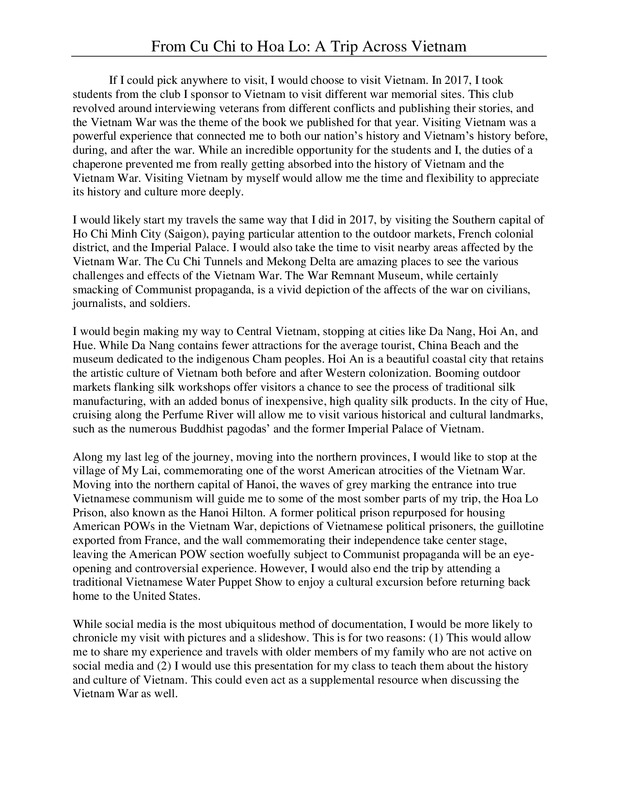
2018-03-11
Travel to Vietnam is seeing increased tourism in the post-COVID world, so while restrictions have dropped, certain destinations that have been included, such as the Cu Chi tunnels or the War Remnants Museum, which typically are densely packed, may have included changes to improve public safety and health.
-
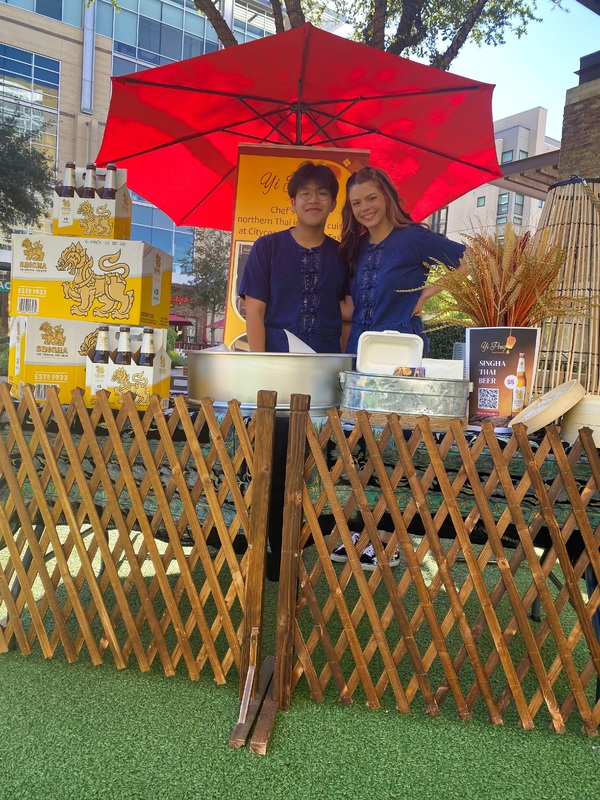
2022-10-01
Unfortunately, I have not been able to travel since the COVID-19 restrictions were lifted. The last two years of my undergraduate were affected by the pandemic, and initially, I was planning to study abroad during my senior year. Unfortunately, that was not possible and I was barely able to complete my student teaching placement for my Secondary Education Minor as the program was constantly under revision to ensure student safety. Now, as a graduate student, if I could go anywhere it would easily be Thailand as that is where my personal historical focus is. While my Thai is far from fluent, I have been steadily learning the language for about a year now as I hope to have an opportunity to complete an extended stay for scholarly or leisurely purposes. In terms of specifics, I would first like to travel to Chiang Rai, Sukhothai, or across Isan as Northern and Eastern Thailand have some of the richest historical and cultural sites, combined with the fact that individuals who I am very close to are from these areas as well. I have worked part-time at a Thai restaurant in Houston for a significant amount of time which helps considerably with practicing the language. As I am one of the only foreigners that works for the restaurant, the owners, my co-workers, and the individuals I have been introduced to through them have become like a second family to me, and I am very grateful for their generosity, inclusivity, and willingness to teach me as an outsider to the culture. Thus, I would love to be able to visit the areas that have meaning to them as well as fulfill my own historical ambitions. Two of my closest co-workers and I discussed traveling to Thailand and Laos together, and we agreed it would be interesting if we started a vlog to document the process. Not every temple or historical landmark allows photography or video to be taken, but I do think a vlog would be a great way to capture the moment as I am not the best at actively documenting things through social media. Video documentation also has the advantage of directly capturing the emotions and excitement of traveling as opposed to journaling or even photography. The photo I chose is of my co-worker and me at an event for the restaurant promoting Northern Thai cuisine in the traditional "Mo Hom", or the shirts worn by rice farmers.
-
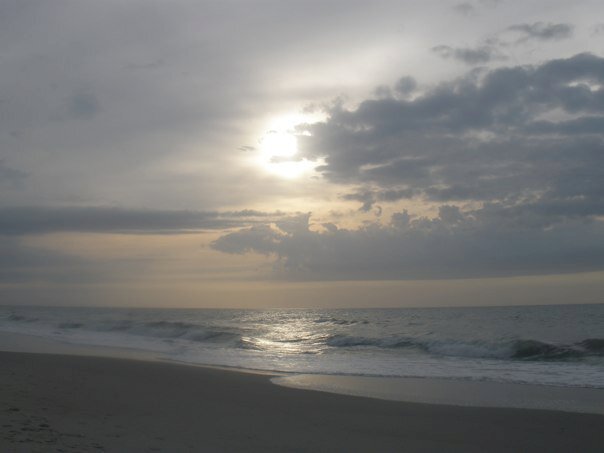
2013-03-14
This is a photograph i took on my last major vacation to South Carolina in 2013. If I could travel anywhere I would go back there and I would go back to Disney World and my dream vacation that I have never been on would be Hawaii. Due to circumstances that happened in 2013 I have been unable to return to South Carolina since. I would go back because I have some positive memories there and it was the last trip before my mom got paralyzed two months later and it is one of her favorite spots too. I have also enjoyed trips to Disney World and have always wanted to visit Hawaii. I did have a trip planned to South Carolina and Florida in February 2020 but had to cancel because of Covid and I have not had a chance to go back since.
-
2020-04-20
I was stationed in Oahu when Covid restrictions went into place. The entire island shut down and, at first, it was fantastic not having to go to work and just hanging out on a tropical island. As time went on, people started to go stir crazy, when the local government closed the beaches and other activities that made island life bearable. When Covid reached its worst point, the Army stopped allowing people to move, so even plans that were months out were canceled. Having joined those who went stir crazy, the prospect of being stuck in Hawaii any longer than necessary held little appeal to my family and I. When restrictions eased a little, military moves were only possible if the place you were coming from and going to were having drops in cases. We didn’t know for sure that we could move until a few days before it happened. We were so excited to be getting out of Hawaii, we forgot about how disappointed we were that my next duty assignment would be taking us to Denver. I’ve been to Denver before and didn’t like it, but when we got off that plane, after being trapped on an island for the last year, it was exciting. Most of my children weren’t old enough to remember snow, so they were immediately excited about the change. I was happy to see real mountains again, but forgot about changing seasons. It took me a while to realize that I can’t wear shorts in December any more. Colorado, for being so liberal didn’t have much in the way of covid restrictions. It was refreshing, considering that in Hawaii everyone was still wearing masks for everything.
-
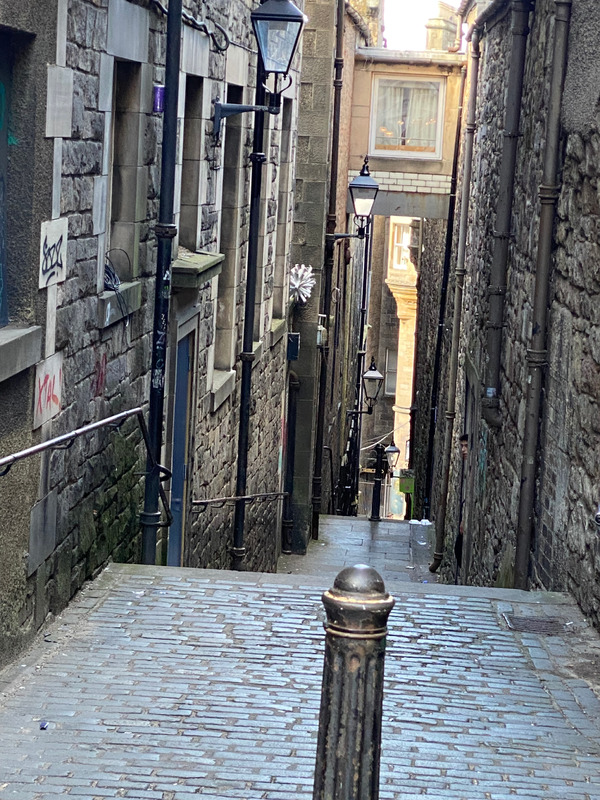
2021-04-18
I had been dreaming of this trip since 1996 when I went to England on a high school theatre and literature trip and fell in love with the UK. Specifically, I fell in love with Scotland and its history, becoming a British History enthusiast. In August, 2021, I completed my BA in History at ASU, then changed careers from Film/tv costuming to a special education teaching position. During the peak age of Covid-19, I worked full time, completed full time undergraduate studies, interned in politics and not-for-profit law, and started over in a new career and life in a new state. All of 2020-2021 was a non-stop adrenaline rush of constantly moving, getting Covid, and burning out mentally along the way. In 2021, I was halfway through a teaching contract and gravely unhappy, longing to just... escape. I kept dreaming of one photo of Edinburgh that was on my vision board. The picture, from Pinterest, was of a narrow Close in Old Town, Edinburgh, the historic "original" city that squeezed so much history and magic in about a mile. Old Edinburgh held tens of thousands of people in one square mile with their Closes serving as narrow alleyways between buildings of both stone and wood, both affluent and poor societal classes.
After creating this vision board, I started working a ridiculous amount of overtime in the school's residences for special needs students and saving money. I was used to already working over 60 hours a week, so I didn't see the problem yet. The short staffing crisis of special education staff provided the opportunity to earn $40/ hour plus $1000 monthly bonus for anyone willing to work and be okay with less support for challenging behavior or emergency resources. I was willing to work hard to be free for just a short time over the Easter/Passover School break. Flight and accommodation prices were incredibly low at the start of 2021, encouraging tourists to travel. British Airways and other airlines offered incredible fares! These discounts still enabled me to book more affordable fare into 2023. My flight from Boston to Edinburgh was just over $400, with 7 nights stay in two 4 and 5 star hotels plus one castle for a total of less than $1000. My dream trip was planned to every detail and paid in advance or booked for free with historical memberships. The pandemic and rising popularity of Airbnb and Verbo created the perfect discounts for hotels and upgrades to better suites. Pre-pandemic, I got bed bugs from an Airbnb and had a nightmare of an experience, so it was out of the question for accomodation moving forward. While in planning stages, I booked historical tours and entry into sites like Edinburgh Castle, Mary Kings Close, Ghost Tours of the Vaults, Sterling Castle, then in England, Alnwick Castle and Chillingham Castle's paranormal investigation. I already had memberships to multiple British historical and public sites like the Alnwick Gardens (site of the famous Poison Garden) and Historical Scotland. From Edinburgh Castle to Chillingham Castle, I finally got to see the gallows, dungeons, and artifacts that were in my undergraduate classes. Finances and waiting for a travel companion to finally find "the time" to go held me back from going previously, but I was there, alone, at this particular time for a reason. I got to hold Witches Collars and touch an Iron Maiden that tortured so many innocent "witches". I sat in castle common areas alone with a glass of Whisky and venison sausage while hunting ghosts. Museum staff showed me witches charms and introduced me to folklore that secretly told tales of history in starkly lit archival research rooms. It was this trip that solidified by decision to continue onto graduate studies in history at ASU. It was this trip that made me question, "Why are we so fascinated by death and folklore?"
It would be remiss to mention that during my historical tourism of Edinburgh and the Scottish-English Borderlands, the stories of historically significant pandemics and major moments of medical and scientific struggle or discovery were always present- It was..."everything, everywhere, all at once", if you will. The comparisons between Black Death to Cholera to Spanish Flu were ever-present while exploring Mary Kings Close, places of Surgical and Medical History interest, The Vaults, the Grass Market Gallows. I stepped into a cramped spaces that were once the homes of a families who all died of The Plague. White rags hung out the windows of these tourist destinations to remind visitors that it was the way leather beak masked Plague Doctors identified the infected and quarantined. "Haunted" Vaults served as reminders to modern tourists that the poor and disenfranchised once stayed here. If you want to go anywhere in the world to see a pandemic being held with an engrained fear and solemn respect for medical research, it's Scotland. In England, Chillingham Castle and Alnwick Castle allow visitors close proximity to places where prisoners carved each imprisoned day before their deaths into the walls. In Edinbugh, if it isn't a Harry Potter tour, it is a ghost tour. These ghosts are explored with light-hearted entertainment or found during paranormal investigations with high-tech gizmos and Ouiji Boards in this new age when we don't want to talk about how many people died of Covid-19 or a lack of health resources, but pre-modern history when people don't currently hold memory of the dead...
One late morning, I went to a pub on the Royal Mile for a proper Scottish breakfast of sausages, haggis, bacon, eggs, tomato, and toast... and a pint. Bagpipes echoed in the air, passers-by spoke different languages and carried their cameras and I (Heart) Scotland t shirts and Whisky. As I sat outside, just taking everything in, a group of domestic tourists sat at my table. We laughed because we were all uncertain of "Mask? no Mask? What does 'optional Mask mean?' Were we bad people for NOT wearing a mask inside the pub to get another beer?" "Is it appropriate to sit so 'close'?" That particular day was the lifting of the Scottish masks in public places mandate. My mates-for-the-day spoke of their quarantines and experiences with Covid-19 and quarantine with both humor and sombre memories.
The photo attached to this story was from this day where masks were no longer a must. It is also the same scene from my vision board. On my camera and iPhone camera reels, before this moment and after are dozens of photos of castle chambers, countryside fog, tourist photo ops of High Tea or plain ol Costa Coffee at [Insert Tourist Destination]. My photos are visited with gratitude and inspiration. Not only do I have a renewed desire to travel, but I have a spark of motivation to keep learning. I would never have been able to afford this trip at the level of luxury and privilege I experienced it without the Covid-19 pandemic's aftermath of needed promotional discounts. Misery was everywhere, yes, but joy and purpose were found for me. I hope there were others that experienced incredible change and revelation during this time.
-
2020-06-22
To get to this story, I have to go back a few years first.
I'm an immigrant from El Salvador. I came to the U.S. as a teenager in 1994, and never went back. I was in my 30s when I decided it was finally time to visit the grandmother I'd been missing for so long. I started to save and plan. Then she died.
It took several years before I finally took my first trip back in November of 2019. I spent the time vacationing on the coast. I avoided my grandmother's house, my friends, and my family. I wasn't ready. But I decided that for my 40th birthday, in 2020, I'd return for a longer stay and visit my childhood home and all the friends and family left behind.
Then there was a pandemic.
The trip was cancelled, but it was the least of that year's problems. I lost my job and went back to school to start a new career. Our dog got cancer and died. My partner had a friend in El Salvador who died of COVID. I can never reschedule that same trip. Too much has changed.
I'm planning to return this summer. This time with a firmer grasp on life's impermanence. I want to visit the white sand beaches at Playa Mango before it gets turned into a "surf city" tourist trap. I want to visit all the important cultural landmarks, especially those from which I can learn about my ancestors. More importantly, I will not avoid friends and family. On the contrary, I want to cherish the time I will have with them as if the next day isn't guaranteed. I plan to take dozens of photographs, portraits of everyone I see, I want to write down their stories in my journal, I want to record every visit, every meal, every experience possible in my journal. I plan to say "see you later," but not leave anything unsaid. Just in case.
-
2020-04-08
I graduated from college in April 2020, one of my sisters also graduated from college that same semester, and my other sister graduated the year before. As a family we had planned a big trip to Florida and a cruise to the Bahamas as a celebration of our graduations. Unfortunately, because of locks downs and restrictions to mitigate the spread of COVID-19 that trip was canceled. We weren’t able to reschedule that trip and I haven’t been on any trips since but if I could travel anywhere it would be on that trip with my family. I missed out on a fun travel experience to celebrate our graduations as a family because of the pandemic so being able to actually experience that trip now that restrictions are lifted would be a full circle experience. There are a few sites on Nassau that I would like to see like For Charlotte as well as the Pirate Museum. I would document my trip mostly through photography, especially since I would have limited access to the internet while on the cruise ship. This trip would mostly be about spending time with my family as we haven’t all been in the same place at once since Christmas of 2019. Traveling to me is mostly about creating memories with loved ones. The location and things we do are less important than the memories we create together.
-
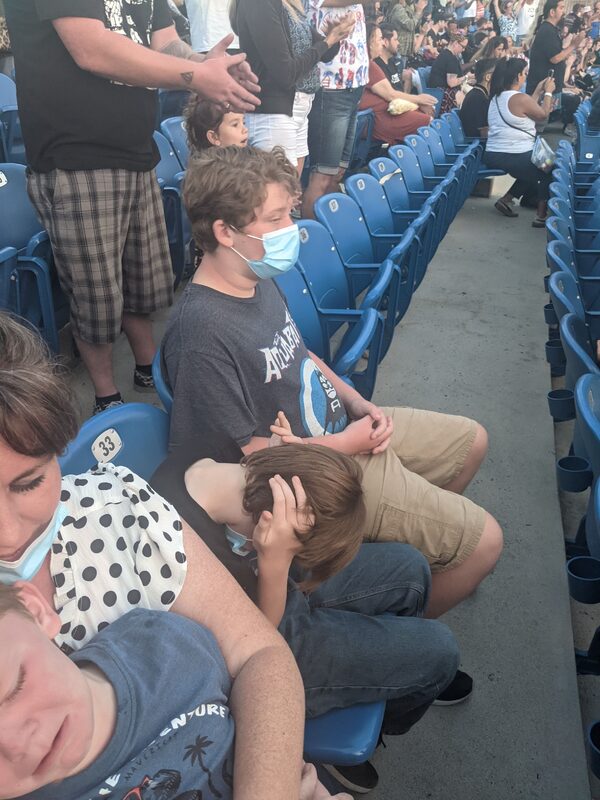
2021-08-11
As pandemic restrictions began to ease up, we decided to travel with our family from Arizona (where things had been less strict) to California (where things had been more strict) to see a concert. Many of the music artists we enjoy had only been performing via live stream for the prior year and a half, but now a band we enjoyed was having an outdoor concert at a large venue. After buying tickets though, we worried because we began to see information on the venue's website that indicated only California residents would be permitted. We tried calling, but there were no responses. We went on the trip, not knowing if we would be turned away. Luckily, the website for the event updates the day off and we were able to enter. It was an awkward feeling as masks were still required for an outdoor event, but the vast majority of participants didn't have them on. The picture is my son in outdoor seating wearing his mask despite everyone around us not. This was much less an act of social defiance or morally based compliance, and more of confusion about what was really expected and fear of stepping across unclear lines in a neighboring state.
-
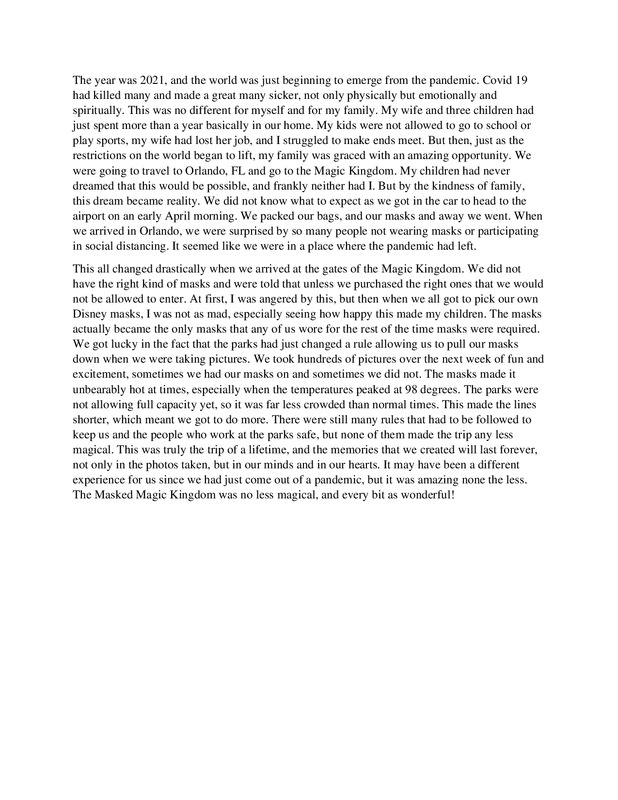
2021-04-27
This is a story about a family trying to experience the World of Disney in a post pandemic world. It shows that even at the end of a pandemic, a family can still make the most and be together and make memories to last a life time!
-
2022-06-15
When travel restrictions were lifted, my family and I did not travel right away. We waited about a year until we felt it was safer to travel. When that year arrived, we decided to take a pre-pandemic planned trip that was canceled due to Covid. We traveled to Cancun, Playa del Carmen, Chi Chen Itza, and Xcaret in Mexico. As you can see, we were anxious to travel the world. The main reason we decided to go to Mexico as our first trip during Covid was that it was economical for a family of ten. Additionally, Mexico was very lenient with Covid restrictions which made it easier for us to travel
One of the most memorable memories was to have watched my kids have so much fun while learning and visiting a country they had never been. As for myself as a History teacher, one of the experiences I will never forget was visiting Chi Chen Itza as I was able to see History with my own eyes and learn more about the locals, community, and culture. With all these great memories that I had as much as we protected ourselves by wearing masks, maintaining social distancing, using hand sanitizer at all times, and all of us fully vaccinated. Half of the family ended up testing positive for Covid while in Mexico. The one thing we were avoiding the most ended up happening during our first trip since Covid began.
While Mexico did not have restrictions to enter their country for tourism, the United States at that moment had a policy that all returning travelers must have a negative Covid test prior to boarding the plane. two days prior to our departure the restriction was lifted, and my family was able to return back to the US without having to wait out in Mexico and extend the trip. Since the family was so conscious of Covid we made sure we had KN95 masks at all times, did not share items, and reduced the amount of contact in order to not spread the virus which is what helped half of the family not get it.
Overall, this was a trip that we will never forget. We had a blast and would love to visit the country another time. We would continue to be safe while traveling even if there are no restrictions. Covid has really changed how I live my life, especially during travel.
What I have submitted is important to me because it will become a record in history in sharing my personal experience during the pandemic. It is also important to me to demonstrate that this area in Mexico is heavily dependent on tourism. While I was there, I met people from countries that had a lot of travel restrictions, and due to Mexico having almost none, it was a very popular traveling destination.
-
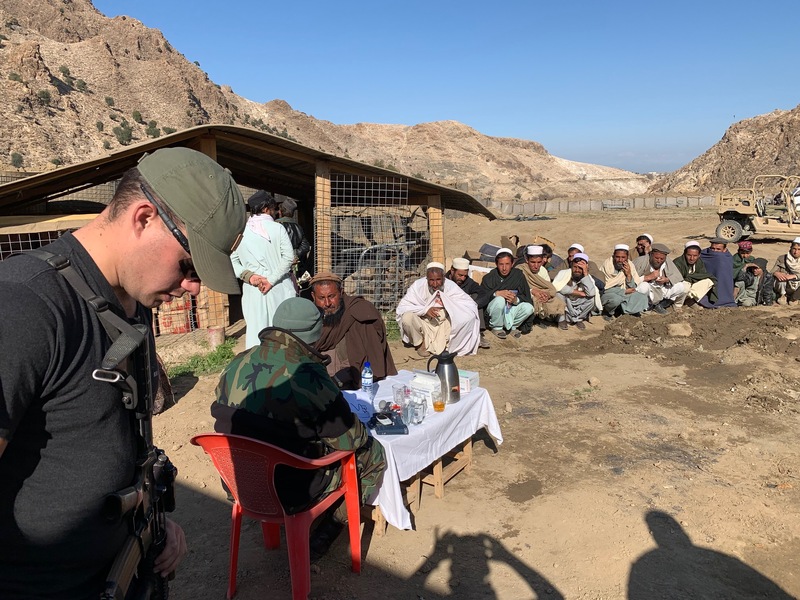
2020-02-18
I spent the majority of 2019 in Afghanistan. As far as deployments go, it was as busy as it was rewarding. I spent my days providing medical care to the local Afghans which included the handling of war wounds, managing chronic diseases, or treating any number of the infectious diseases that are endemic to the Middle East. My day-to-day activities had me in regular contact with sick people, and it was my responsibility to help them. Later in the year, a sickness began to go around. Across the country service members and civilians alike were coming down with what was presumed to be the flu. With consistently negative tests, however, medical professionals began looking to other causes for the wide range of symptoms people were suffering from. When I got sick, I lost my voice for a month and could barely walk out of my room without losing my breath and so I resolved to spending my time lying in bed and watching movies.
When I returned home from Afghanistan in early 2020, I still wasn’t quite recovered. Unfortunately, my homecoming was not an elaborate affair as my wife and children were waiting for me in Texas where they had spent my deployment near family. The plan was for me to visit until it was time for me to move down there as well. I still suffered from shortness of breath and one day, shortly after returning, I nearly passed out on a light jog, and I knew something was wrong. I was scheduled to visit my wife and kids in the coming weeks, excited to see them after my deployment, but my unknown sickness had other plans in mind.
At this point in the year, COVID was in its infancy, there hadn’t been any lockdowns or travel restrictions, only the lingering concern that this new disease could become a problem. So, naturally, when I went in to see the doctors for my persistent symptoms, it was an easy assumption that I had caught COVID early while in Afghanistan in the months prior. While investigating the cause of my ongoing issues, they found a nodule in my lungs. Apparently, my weakened immune system and constant contact with severely sick patients had resulted in me contracting tuberculosis. I was now a high-risk patient. The ironic thing is that my newly diagnosed condition was contagious, and not being near my family prevented me from spreading it to my wife or kids. So much for visiting family after my deployment.
Over the next few months, I was treated with heavy duty antibiotics that left me puking in the mornings and unable to leave my house, which became easier and easier as COVID gripped the world. Flights were canceled and lockdowns were enforced while I facetimed my family 1,500 miles away. After my treatment was complete, I eagerly drove home on empty roads to see my family for the first time since I had left the year prior. I would intermittently make the drive a few more times before I made the official move down later that year.
Three years later, I still remember, as I’m sure we all do, the frustrations that were ever-present at the height of the pandemic. I remember my own frustrations at the difficulty of traveling down to see my kids, something that hadn’t been part of our well laid plans before my deployment. I remember having to explain to three young children why I couldn’t come home and helping my wife explain why they could no longer go to the park, to school, or hang out with their friends. In the end, however, I am grateful. I am grateful because I am able to teach them, through their own personal experiences, that we are all in this together. When they express annoyance at ongoing COVID policies, which cost them personal convenience, I can recount to them the sacrifices they made in order to keep us all safe from my sickness as well as COVID. They have learned that being patient and considerate is as much for everyone’s else’s sake as much as their own and it’s a lesson that has translated across their lives today.
-
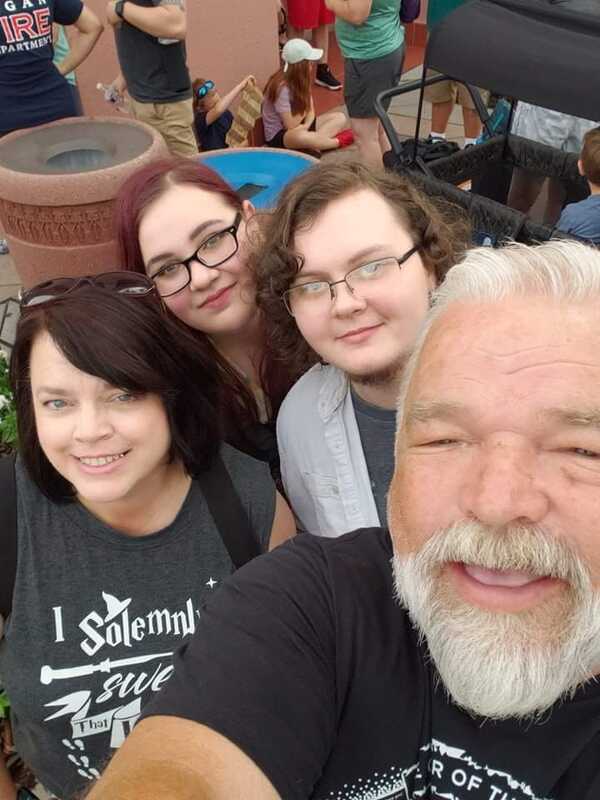
2021-06-18
I graduated from my Bachelor's program in May 2021, after vaccine rollout and as travel restrictions were being lifted. To celebrate, my family organized a short trip to Florida in June, where we would visit the Universal Studios theme park for a couple days, which had always been a dream destination for my parents. This was a huge deal for us, because my family has never been able to afford a vacation like that, and we saved during the pandemic to be able to afford it once travel restrictions were lifted and we were all vaccinated. By the time we went, almost all travel restrictions had been lifted, and I remember the strange mix of relief and uneasiness I got from how "normal" everything seemed in Florida. I hardly saw anyone even wearing masks, and I was honestly glad for that not being a requirement in the theme park - I'm from Kentucky, and I hadn't been prepared for the intense Florida heat and humidity! I'll always treasure the memory of seeing the ocean for the first time and getting to spend time with my family, and even though I was still worried about the pandemic, it felt like such a relief to have a normal vacation after such a stressful and scary year.
-
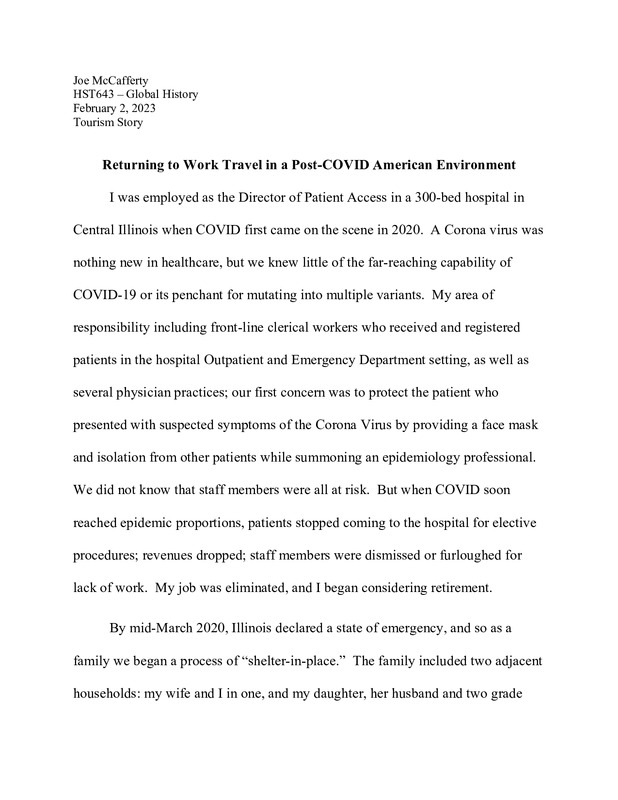
2020-02-23
Enduring COVID restrictions impacting travel.
-
2021-02
When reflecting back to my traveling during the COVID-19 pandemic I think of constantly waiting. I was overseas when the pandemic started and was not worried at all about travel restrictions. I was not even concern about what might happen to me. All of a sudden traveling stop in the middle of March and I was supposed to leave in April. I felt the full effect of the restrictions of where I lived and I made sure I followed every restriction because I wanted to come home. Forward to three months later I was able to come home after travel was open back up but I immediately noticed a difference. We could not leave the plane during refueling. I quarantine before I left and again once I arrived. The world I left had change entirely. Mask were worn by almost everyone and lines were longer because of spacing. Sometimes there would not even be a line because stores and shops were closed down. Once I finally made it home my day to day routines became less adventurous. I used delivery apps on my phone to order the majority of what I needed. This was continuous until the end of 2020 leading into 2021. Restrictions to COVID were becoming social norms and less enforced, specifically where I lived, Mississippi. The first trip I took once restrictions of travel were lifted was to San Antonio. Touring in in Texas was thriving when I initially got there. However the very next week Texas had frozen over. We did not have electricity or water for almost a week. Texas was in a state of emergency. Traveling on the road was highly advised against. Getting resources to feed myself was difficult. I waited in line for two hours to gather groceries for myself because the line stretch around the store. Once I was able to leave Texas and return home I did. My time traveling to Texas set a precedent for me. I now travel with extra food and water no matter where I go.
-
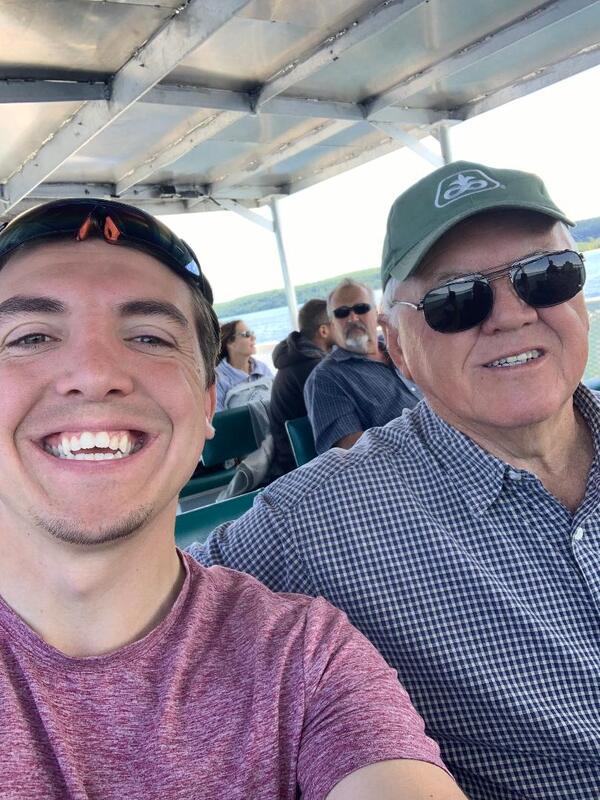
2021-07
After 2020, I was looking to travel and try to get back to normal. However, in 2021 I was supposed to go to Europe to see my sister but COVID canceled that trip so I was perplexed at what I could do for travel. Then it came to me, my grandpa is someone who has traveled almost everywhere in the US. With that, he loves to camp and one of his favorite spots that he always mentions is Mackinac Island. I thought this would be a great bonding trip. So for Christmas I told my grandpa that I would love to go on a camping trip with him up to Mackinac Island in Michigan. This would be the first time me and my grandpa would be going on a week-long vacation with just ourselves. What was funny is that everyone in the family warned me because my grandpa never stops talking and the music would be in his hands. The good thing about that is that I had lived with my grandparents the summer after I finished college so I was used to being around the constant conversations. Secondly, I am an old soul so I love 50s and 60s music. Therefore, I knew that this could be one of the best trips I might ever get to take with my grandfather.
The trip began in July of 2021 as we left my hometown of Manteno, IL and traveled up to Michigan. We had a small popup camper that we were going to be sleeping in for this week's trip. There were so many favorite memories it is kind of hard to trim down. First off, traveling was so much fun, having deep conversations about my grandpa’s life and the different times that he had gone to Mackinac were so fascinating. My grandpa can talk to anyone so he is a very good storyteller. Another memory was setting up the camper because the second time we did set it up we forgot to stabilize the back so when I went to lay in bed the whole thing tipped over. The good part is that no one got hurt. On the second day when we arrived in Mackinac it was down pouring on us, thankfully my grandpa had ponchos ready to go. That night we started the tradition that would carry on for the night which was our card games. Every night we played either crazy eights or dirty spades. Those were some of the best times when we were just hanging out together. I cannot tell you how amazing those memories still are today. When we traveled to Mackinac Island on the third day it was amazing. Me and my grandpa walked all around the island taking in the nature, the history, and the culture on this small island. It lived up to the hype my grandpa had told me. After that day we traveled up to the Upper Peninsula with the UP-ers which was cool to see. That night we slept on the border of Canada, which we could see across the river in Sault Ste. Marie. We went on a couple water boat tours in the Great Lakes which were amazing. One of the last funny memories we had was that my grandpa finally let me drive on the second to last day. I am not kidding you when I say thirty minutes into driving one of the camper’s tires was gone. The best part was that neither of us noticed until a car passed us and pointed it out. This was such a funny memory because then we had to replace the tire and that is a story that me and my grandpa still joke about. Maybe my driving is bad but I don’t know, it could just be bad luck. The good thing about this entire trip was that the COVID restrictions were minimal. Since we were outside for the most part that was almost never an issue. A couple times when we went into restaurants we had to put our masks on, but it was nice because we were getting fresh air. Overall, the trip was a resounding success and one that I know holds a special place in my heart and my grandpa’s. I feel so fortunate to have had this experience with my grandpa and cannot wait for the next roadtrip we have together.
-
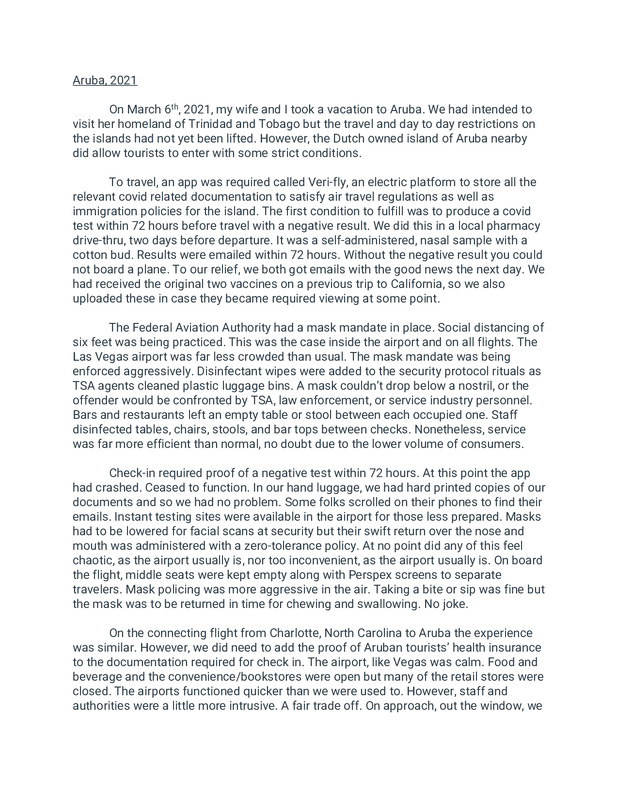
2021-03-06
This is a story that reflects positively on the implications of covid and how it effected the tourist experience. It is an honest, first hand account of travel to the island of Aruba without the mass tourism they have become so familiar with. It speaks to the erosion of personal nature and connection that coexists so easily with the superficiality of mass tourism.
-
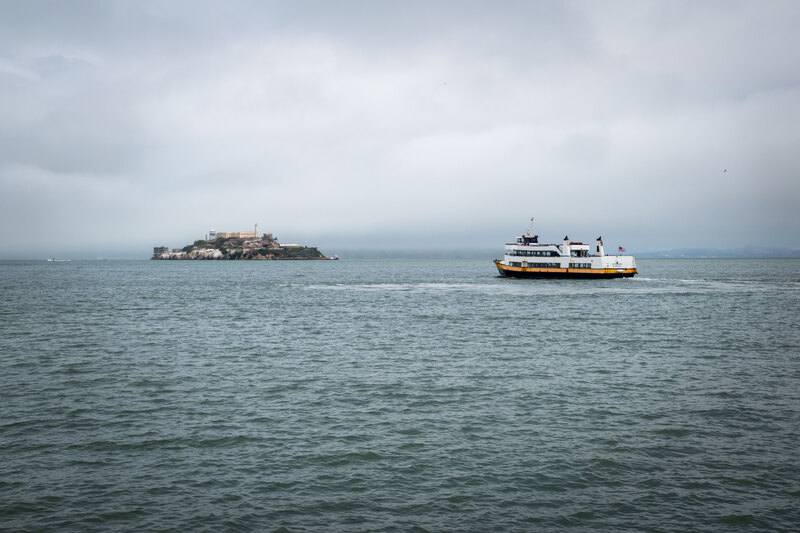
2022-07-01
My plans to visit San Francisco in 2020 came to a halt with the outbreak of the Coronavirus. As a high school teacher, I was looking forward to my long awaited-spring break. It had been quite some years since my last visit to the San Francisco, and I knew a trip to ‘The Bay’ was long overdue. I booked a flight, hotel, and waited patiently as the weeks went by.
Spring was coming up and there were heavy concerns about COVID 19 spreading into North America. I was slightly concerned but figured I would be safe to make this trip. As news broke out about cases emerging in San Francisco, the nation went into hysteria. I was not skeptic about the hazard of Coronavirus, but selfishly planned to proceed with the trip. Then my father called me.
My parents, both in their seventies were definitely at risk, especially my mother who struggled with health since my childhood. My father asked me kindly not to go to San Francisco. Without hesitation, I canceled my flight and hotel. I had booked everything online through a third party and was unable to receive any refund. Bummed out, I knew it was the right thing to do.
Coronavirus spread, schools shut down and my spring break prolonged. At first I was spending time kayaking, but the weather in Phoenix got so hot I had to stay inside. The Phoenix summer of 2020 had record breaking heat with 55 consecutive days of 115 degrees plus Fahrenheit temperatures. I was miserable. With concerns of my mom’s health, social distancing, living alone and bored, I was very unhappy. The unjustifiable killing of George Floyd caused anger, and rightfully so, across the nation which contributed to more hysteria. The only positive that came from that hot summer were my experiments in the kitchen. I would then deliver tasty meals for my parents. This was the one thing that made me happy.
Unfortunately, my mother did not survive past the summer of 2020. She passed away in her sleep peacefully due to an unrelated COVID cause. I was on an all time low. Sad, empty, missing my students, and missing normal daily life. We had no idea how many people would die and when things would normalize. It was truly scary.
Fast forward to 2022 and things were much better. I figured surviving 2020 made me stronger and much happier. Vaccinated and boosted, I decided to pursue my trip to San Francisco. I made the best of this short trip. I went to a party outside the Chase Center for the NBA Finals, in which the Golden State Warriors played against the Boston Celtics. For the first time, I took a ferry to Alcatraz. In China Town, I saw locals dance with dragons, in which one bopped me in the face while I was taking photos! Caught by surprise, I did not take offense to this. Observing how the dragons behaved with mischief, I knew it was all for fun. This made me laugh. This was a much-needed trip indeed.
2020 affected everyone around the world. With global hysteria, people getting sick, people dying, racial injustice, everyone except pandemic deniers and those oblivious to political issues resonated with fear. Passing through time, my 2022 trip to San Francisco was a rebirth. A rebirth to normalization. A rebirth to my passion of exploring culture. A rebirth of sanity, and a rebirth of controlling fear. A rebirth to laughter. With dragons, noodles, basketball, and Ghirardelli, the delay to ‘The Bay’ will forever be a golden memory.
-
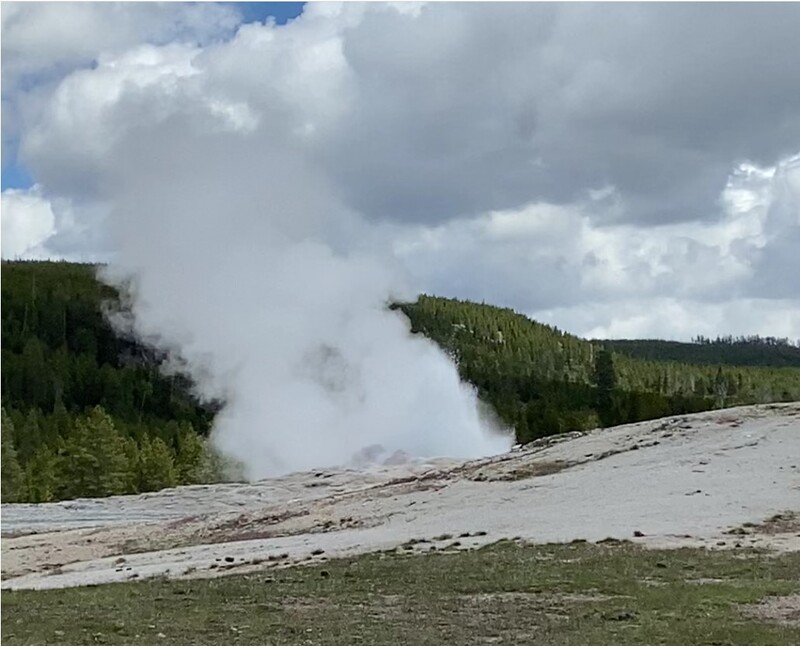
2022-06-01
The first trip my family and I took once COVID restrictions were lifted was to Yellowstone National Park in Wyoming. My family enjoys being outdoors and in nature and had been discussing a trip to Yellowstone for years. We rented a cabin a half hour north of the park and drove in everyday for four days. Each day, we took a different road so we could see as much of the park as possible. The most memorable part is that on the northern road, up in the mountains, there was still quite a bit of snow on the ground. About a week after we left, all that snow melted, flooded the Yellowstone River, and destroyed the road that we went in on everyday. I also enjoyed seeing the wildlife in a natural habitat, even if there were buffalo in the road a few times a day. The busiest day was the day we went to Old Faithful. Old Faithful is probably the most popular tourist attraction in the park aside from the wildlife. Everything in the area was busy; the gift shop, hotel, restaurants, boardwalks, parking lot, everything. This was the most people I saw in one place the entire trip. When we took this trip (June 2022), as far as I remember, there were no COVID restrictions in place. I would not have minded, and maybe even preferred, if there were as some places were quite compact. They did encourage social distancing in the indoor areas but nothing was enforced. It was, however, nice to experience the park in what could be perceived as normal.
-
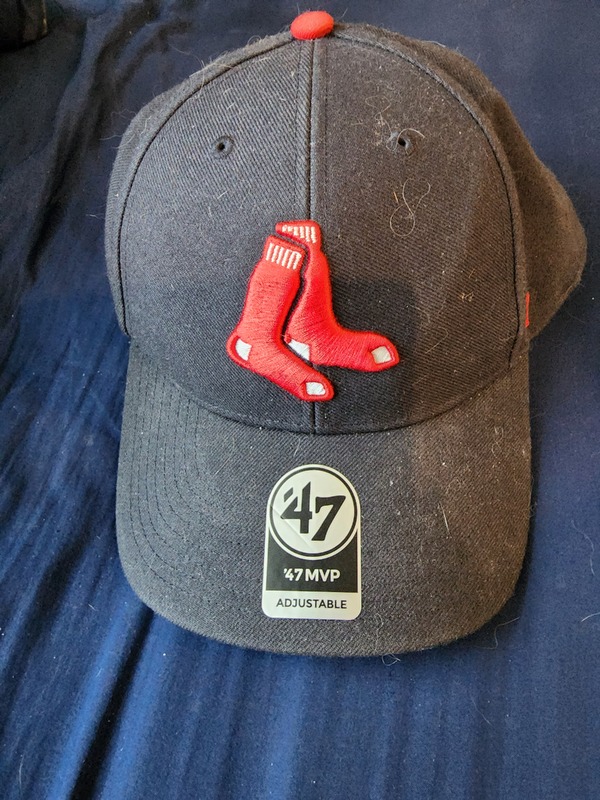
2022-09-09
The story is of me and my father going to see the Red Sox play at Fenway. The hat in the picture is the one I got at ballpark. It is important to me because it was the resumption of a tradition that me and my father have done for years.
-
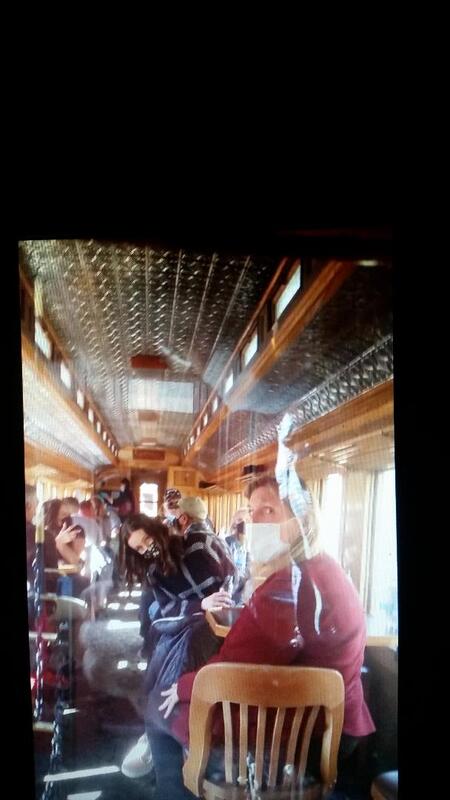
2021-04-12
My twin sister and I turned 20 right after the beginning of the pandemic in April 2020. That birthday was a gigantic bummer, because all my friends had left my college campus and I was still there but couldn't visit home either due to Covid concerns (my parents are in their 60's and my sister has asthma). So, after a year of not traveling or doing very much else, my first post-covid trip was for my 21st birthday. Not yet ready to get back on airplanes but wanting to do something exciting, my mom, dad, sister, and I packed into the van for an 8-hour drive across Colorado to an Airbnb in Durango, near the southwest corner of the state. Durango is a cute little tourist town that's still sleepy from winter in April, and definitely non-traditional for a 21st birthday bash. We had two objectives for the trip: Mom and Dad were going to buy us our first (legal) alcoholic beverages, and we were going to take a ride on the narrow-gauge railroad that ran from Durango to the nearby tourist/old mining town of Silverton. The first goal was accomplished quickly upon our arrival; we located the old Strater hotel, built in 1887, complete with a bar where we immediately situated ourselves. The servers were dressed like flappers, all wearing masks, many matching the colorful fringes of their dresses. I ordered an old fashioned, was tipsy after half, and handed it off to my mom to finish. My dad had a great time shepherding us back to the van. The train ride the next day was the highlight of the trip. We bought tickets in advance, since only a limited number of seats could be filled in each car due to lingering covid precautions. Masks were also still required, except when eating and drinking (a full bar was available, as well as coffee and pastries). The train crept up into the mountains alongside a river, sometimes crossing over very tall trestle bridges, prompting my mom, who's afraid of heights, to pull her mask up over her eyes. Lunch, which was previously served on the train, was instead provided to us in pre-packaged boxes, to be eaten outside at picnic tables along the river where we were free to spread out and remove our masks. On the ride back to Durango, the full bar on the train was open, and most masks came off. My parents bought my sister and I our second drinks of being 21 (mimosas at 3:30pm, woo!) and we headed back to the Airbnb, stopping to pick up some Serious Texas Barbecue. While Covid ruined my plans for the 21st birthday party I thought I would have, it gave me a few years to slow down and to appreciate my family and small, meaningful, gatherings together, which I wouldn't trade for the wildest party in the world.
-
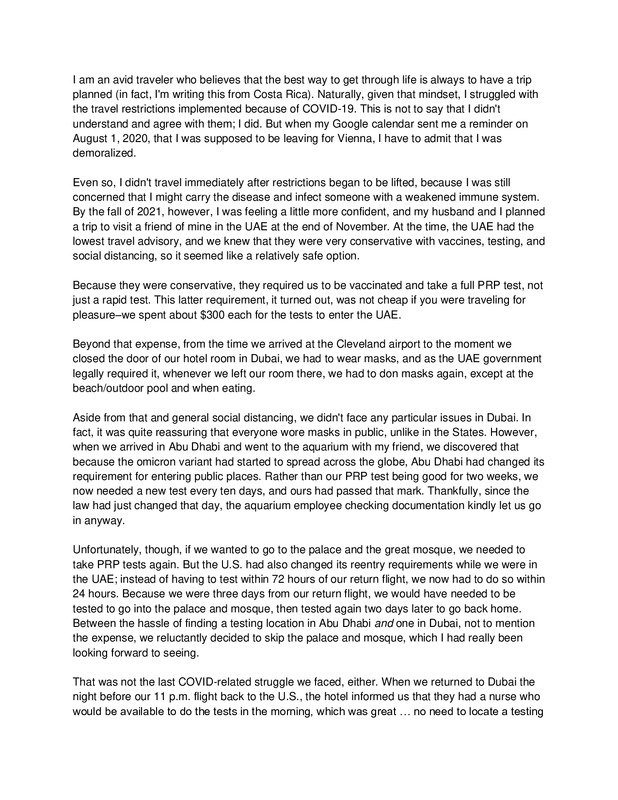
2021-11
My first trip post-Covid was greatly affected by Covid-19, from expensive tests to missing two national landmarks to a flight delayed by lack of crew to wearing a mask for nearly forty hours straight. I was finally able to travel again, but the signs of the pandemic were still everywhere.
-
2020-08-04
My family has owned a small cabin by a lake in Northern Minnesota for over 60 years. This is my favorite place in the world and was our family vacation destination every year. As years went on my dad and I are one of the few who continue this tradition. After quarantining in April and May and businesses slowly reopening in June we decided in August 2020 that it would be safe enough to go up there. However, this trip ended up being much different than usual.
While Minnesota was under a mask mandate the area we were in was much different than the suburbs of Chicago. At home more often than not people did adhere to the mask mandate and there was a mandate to self-quarantine when returning to the state after traveling.
The area where are cabin is located is very densely wooded and not exactly populated. The small town has about four hundred people and the nearest large grocery store is a forty-five-minute drive away. While grocery shopping in town it was clear the mask mandate was not as strictly followed up here. Only about half of the customers in the store were wearing masks. The likelihood of adhering to the mandate dropped even further once we reached our township. Even though there were signs posted to “wear your mask” my dad and I were considered the odd ones out at the bait shop or lumber store, as I did not see a single person with a mask on in the ten days we were up there.
All of our neighbors who live on the road that hugs the bay are all older. I have known most of them my entire life and some have even watched my parents grow up. Many of them live downstate near the Twin Cities, and some even live out of state, but very few of them live up there full time due to the harsh weather and isolation. It wasn’t until the last few years that the country started to plow our road in the winter. This ten-day vacation is normally packed with multiple dinners at neighbors' houses, tubing and fishing, parties and yard games, and finally ending the night around a fire with our neighbors, their kids, and often their grandkids.
This trip, there was none of that. Windows and doors were boarded up because out-of-state neighbors never made the trip up to open their cabins. Jetskis and other water toys were locked up because most older neighbors did not risk leaving quarantine. As far as we could tell it was just my dad and myself. Fishing was just the two of us, the only people we had to argue with over card games were each other, and we both fell asleep more than once on the boat or dock while reading books because it was so quiet. It might have been much more lonely and quiet than normal, but it was still relaxing to be surrounded by nature and absorb its sounds uninterrupted. COVID-19 changed my vacation, but not necessarily in a bad way. I am lucky to have a lake house that was isolated enough that COVID did not seem to touch it. Although we missed our neighbors and have since seen everyone the loneliness allowed for a sense of stillness, the ability to fully emerse myself in nature and relax.
-
2021-05-03
I am a software engineer at a small, fairly conservative, company in PA. Because of its small company status it was never required for our employees to work from home, at least that was what they told us, and throughout the pandemic it was in fact a requirement that we work from the office. I wasn’t surprised when I was told I would be traveling to Washington state but I was apprehensive. A few of our employees were getting stick but I had so far been safe. On May 3rd 2021 I drove to the airport with a mask on my face and hand sanitizer in my hand. The airport was fairly empty as it was early but the few people that wandered the terminals were wearing masks. My flight was long but I got some sleep with the help of some Dramamine. That night my coworkers went out to eat but I decided to order in.
The next morning I headed downstairs to head out for my first appointment. At the registration counter there were brown paper lunch bags sitting out in a neat row, the woman behind the desk asked me if I would like a breakfast bag to-go. As I walked over to pick up one of the bags she explained to me how due to Covid-19 they are not longer serving a hot buffet breakfast but are instead were providing this to-go bag options, I smiled from underneath my mask and thanked her. The bag had a banana, a granola bar, a yogurt and a bottle of water.
I drove to the meeting site and headed inside, there were few people around but I noticed no one was wearing a mask, I felt like my light blue mask was a huge neon sign directing everyone’s attention to me. When I arrived at the designated meeting room I set up my computer and prepared the demo while I waited for others to arrive. One by one they walked in, greeted me, shook my hand and took a seat. Still no one was wearing a mask or if they were it was not secured properly, I felt embarrassed being the only one with a mask on.
Once everyone arrived I stood up and looked at the room, everyone was looking right back at me, waiting. I took off my mask and began the meeting. The rest of the week was more of the same and the trip home was uneventful. A few days after getting home I tested positive for Covid-19 and was finally allowed to work from home, at least until I got better.
-
2020-10-05
My family resided in Columbus, Georgia during the Covid-19 pandemic. In October 2020 my sister-in-law’s family came to visit us from Arizona. We decided to take our families to Great Wolf Lodge in LaGrange, Georgia, just 45 minutes from my home, for a two-day vacation. This was my first experience traveling after travel restrictions were lifted.
Great Wolf Lodge houses an indoor water park, restaurants, and family entertainment attractions, as well as hotel accommodations all in one building. My family had visited before the pandemic, so we were familiar with the resort and procedures. This made changes in policies and behavior more evident than they may have been otherwise.
Safety protocol set in place at Great Wolf Lodge included mandatory mask wearing in the hallways and open areas of the resort. Masks were not required in the waterpark; however, signs were posted throughout detailing mandatory social distancing protocol. Individuals were to remain at least six feet apart from each other in all areas, especially when waiting in lines. The guidelines were a nice idea, but large swarms of children eager to get onto a waterslide cared little for waiting in lines any distance apart. The adults seemed to feel the same way too. There was no personal space while waiting in lines, much less six feet social distance. In normal times, Great Wolf hosts bedtime dance parties and stories in their main lobby for the kids. Due to Covid restrictions, however, these dance parties were canceled and instead were broadcast on a set TV channel that could be viewed from guests' rooms.
Our families arrived around 1:00 in the afternoon on day one. One person went in to do the checking in and then we headed to our rooms to change and head to the park. Everyone played for at least three hours. A few of the older kids tired out earlier and headed back to the rooms. The rest of us headed back to the rooms for dinner with the plan to meet up again afterward and play until the park shut down. Over the next hour, almost all of my kids started coughing. We started to wonder if they were having a reaction to the chlorine. Then the runny noses started and even the most excited kids said they were too tired to go back that night. After talking to my sister-in-law, the same thing was happening in her family. We decided to call it a night and check back in the morning. By morning, we had to call it. Even mild cold symptoms were enough in those days to get you thrown out of public places and we had to be cautious with even the smallest symptom that might indicate Covid-19. We knew the only responsible thing was to pack it up and head home. We had a great three hour vacation the day before, but the rest of it just wasn’t going to happen. It was the most expensive three hour vacation I think I’ll ever have. We felt like criminals smuggling our tightly masked children through the halls that morning and begging them to hold in their sneezes or coughs until we got outside. We were so glad we had chosen to vacation only 45 minutes from home that time.
The colds passed, and eventually we returned to Great Wolf Lodge to enjoy a full vacation. We still laugh, though, about our attempt at a “normal” vacation in the midst of Covid-19.
-
2020-12
In March of 2020 my family and I were supposed to go to Hawaii for our spring break. When I was at work around St. Patrick's day, the school administration announced that all sports were postponed because of covid-19. A couple of days later I found out that we would be moving to virtual learning until spring break. During this time I remained hopeful that we would be back in the classroom after the break and that I would still be able to visit Hawaii. As the weeks went on it became clear that this was not the case. Eventually we moved to permanent virtual learning and the airlines canceled and refunded my ticket for Hawaii. As 2020 continued on I became more and more frustrated over the impact of covid, especially as what seemed like 3 weeks at home, turned in to several months without travel and in person interaction. In December of 2020, after completing a semester of half virtual, half in person learning I was in need of a break and a change of scenery. On Christmas my family and I found really cheap flights to Hawaii, however these flights were leaving the next day. Since I was a teacher on Christmas Break I had the time off, the only issue was that we needed to get a negative covid test before landing in Maui. We quickly booked the flights and scrambled to find a place we could get a covid test. In order to get off of the plane in Hawaii we needed to take a covid test 12 hours before arrival and our results needed to be negative. We did not have enough time before our flight to have a test shipped to our house nor did we have enough time to wait 2-3 days for results. Luckily we found a place 45 minutes from where we lived that had an opening for four rapid tests. After acquiring our test, 18 hours before our flight we eagerly awaited the results. All four of us had a negative test and we were able to board our flight to Hawaii.
When we landed in Hawaii, in order to get off of the plane we had to show our negative test results. If someone did not have test results they had to remain on the plane and wait for it to return to the mainland. After showing our tests, we had our temperatures taken again and and our visit, including our accommodations, had to registered. The remainder of our trip to Hawaii was relaxing. Although it was weird to walk on the beach with a mask and sit far away from other guests, it was nice to get away. While we were in Hawaii I remember talking to a waitress we had that explained that from March to July residents were not allowed to enjoy the beaches. She described how lonely and isolated she felt stuck in her small apartment by herself. Even though it was difficult to get to Hawaii during covid, we needed a getaway and the hospitality workers in Hawaii were glad to see things slowly picking up again.
-
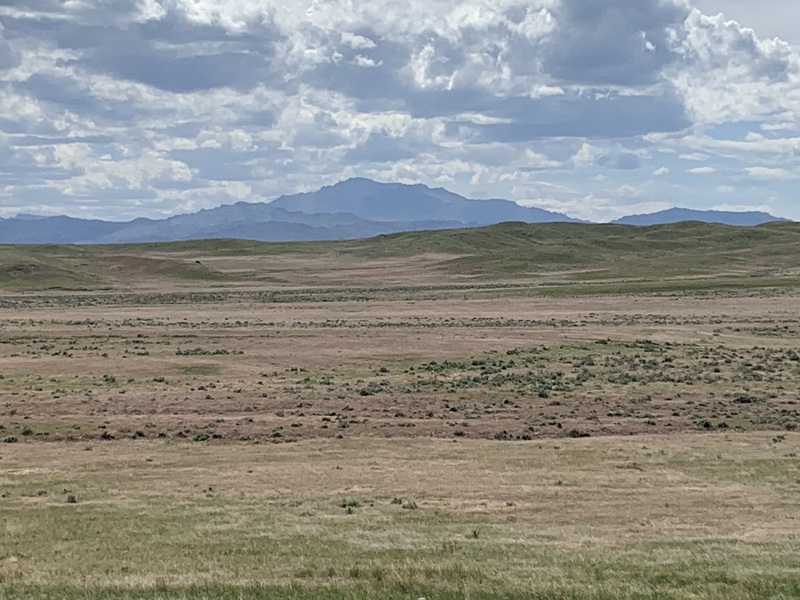
2021-06-09
In the summer of 2021, I accepted an adjunct job at a college back East. Rather than spend half the salary on rent and in order to socially distance from others, I fixed up a Toyota Sienna minivan so I could live in it for the summer. This was the first trip I had taken since the late winter of 2020. On the drive out from California, I stopped to climb a mountain in Wyoming and had the trail to the summit mostly to myself. Here's what I wrote about it on Facebook: "View of Laramie Peak (elev. 10,275) in present day Wyoming, an important landmark on the Oregon Trail. For those emigrants not from Appalachia or northern New England, it was the first really big mountain they’d ever seen and it loomed in front of them for several days as they approached it from the plains. Mark Twain passed by here in 1861 and recollected later, speaking about the mountain in the third person: 'Looming vast and solitary -- a deep, dark, rich indigo blue in hue, so portentously did the old colossus frown under his beetling brows of storm-cloud. He was thirty or forty miles away, in reality, but he only seemed removed a little beyond the low ridge at our right.'"
-
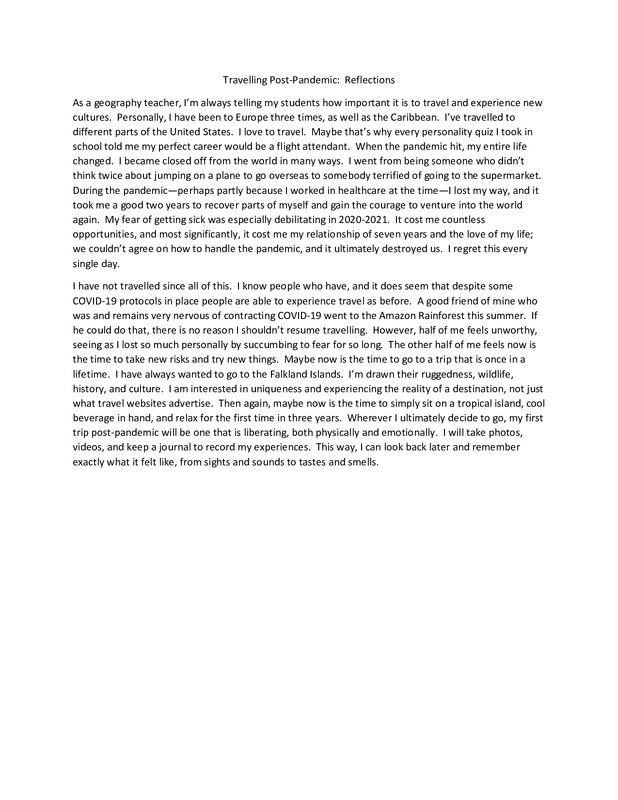
2023-01-29
Deciding whether or not to travel post-pandemic has been weighing on me emotionally. Here, I identify reasons I should vs should not travel, as well as where I would go and why.
-
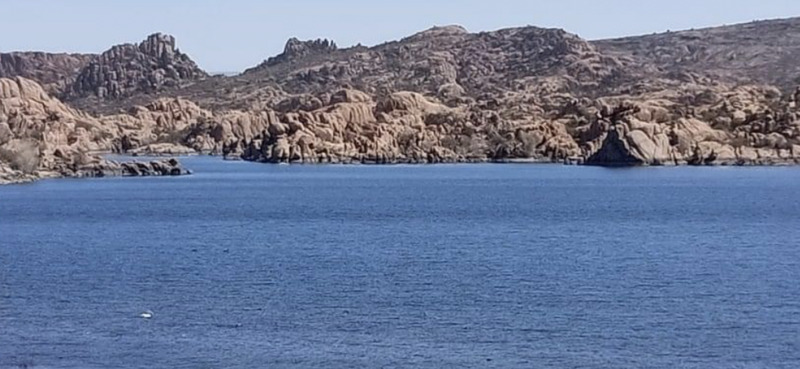
2021-03-30
I took this photo of Watson Lake near the Dells five days after restrictions were lifted. From what I remember, there were no travel restrictions at the time. I was one of the few that lived on a large property, and I could stay busy feeding my animals, chopping firewood, and working on homework. However, concerning the photo, I was coming home from getting guitar strings in Prescott. It was the first time I had thought about playing music since my good friend Joseph Morganfield passed away in December 2020. He's the son of Muddy Waters and was one of my biggest supporters as an artist and musician. I always tell folks if I could have chosen a dad, it would have been Joseph. This day was important because I realized life would go on, after Covid, like it or not.
-
2021-06-06
The first trip my wife and I took after the COVID travel restrictions were lifted was a doozy. Our first flight in over a year was a three-hop journey from our small Montana town to Alaska for an old friend’s wedding. With a six-month-old. On our laps. The whole time. My wife and I had our first round of vaccines but worried about our daughter, who was still far too young to have a dose. After much risk assessment and consultation with our pediatrician, we decided to go for it. Mask wear was strictly enforced on the airplane and in most of the public places we found ourselves, and there was a profound and somewhat discomforting sense that we and our fellow travelers were searching for a way to exist comfortably in this new not-yet-maybe-never-post-COVID world. The thing I remember most, though, was how incredibly freeing it felt to be somewhere new again. So much time spent at home, however necessary, had inflicted an unhealthy solitude on much of society, and my first time solidly stepping away from that felt energizing. I’ve always loved to travel and doing so after the darkest days of the pandemic felt like a happy return to form. A reverse homecoming, if you will.
-
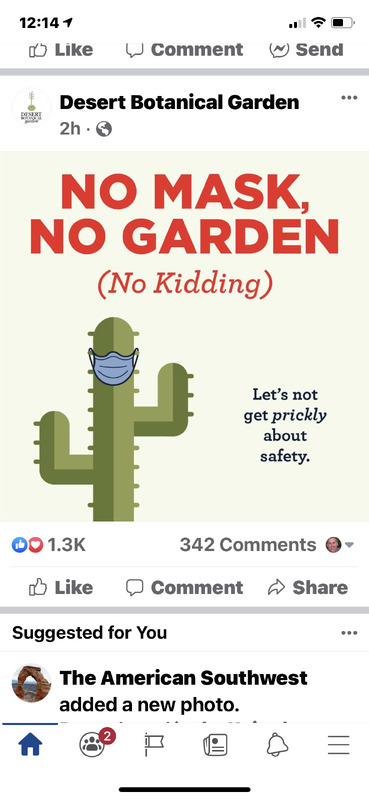
2021-03-12
The Desert Botanical Garden is a fixture of Phoenix area tourism. A botanical garden of arid lands, it's unique and draws thousands of visitors every year. Their social media emphasized the importance of masking during the pandemic, with the catchy phrase "Let's not get prickly about safety."
-
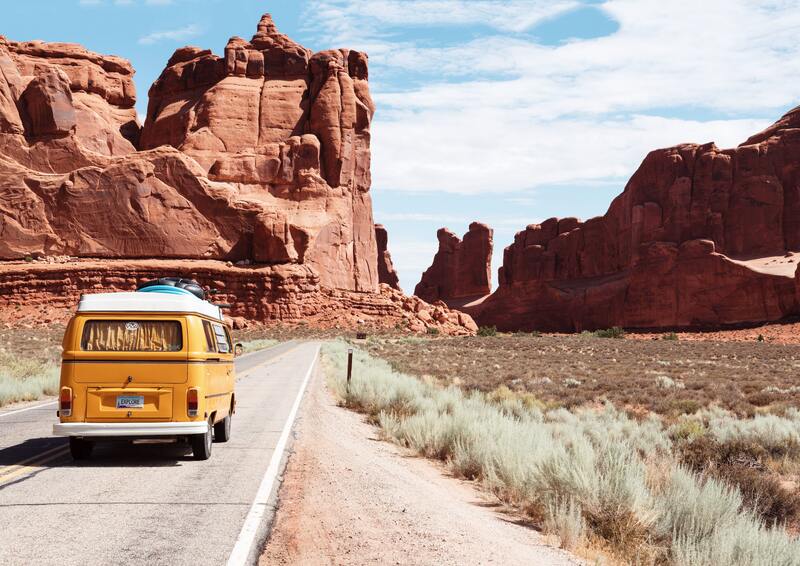
2023-02
Worldwide, nations implemented social distancing and disease mitigation strategies in the Spring of 2020. These policies varied widely, but many places experienced restrictions on personal movement and travel.
For your submission, respond to the following prompt:
When travel restrictions were lifted, did you take a trip? If so, where did you go and why? What are your memories of this trip? Were there any continuing COVID-19 restrictions in place?
If you did not travel and have still not traveled, answer the following question: If you could travel anywhere, where would you go and why? What destinations would you be sure to see? How would you document your trip (journal, social media, etc.)?
How and What to Submit:
For this assignment, you'll submit one item that captures a travel memory that relates to the COVID-19 pandemic. You'll submit your item to the COVID-19 Archive Links to an external site.on the "Share your Story Page." Include the following metadata (information):
The title
The description (this is the most important part.
Tags: at a minimum (Arizona State University, HST 643, and History of Tourism). Feel free to add your own additional tags.
Type: Audio recording, photograph, video, text story, recipe, etc.
Date (When did this story happen)
Contributor (your name)
Location (where did/does this memory take place).
What to submit:
Submit your story to the archive
Submit the title of your story on Canvas and the date you submitted it. This will help me find it in the archive.
-
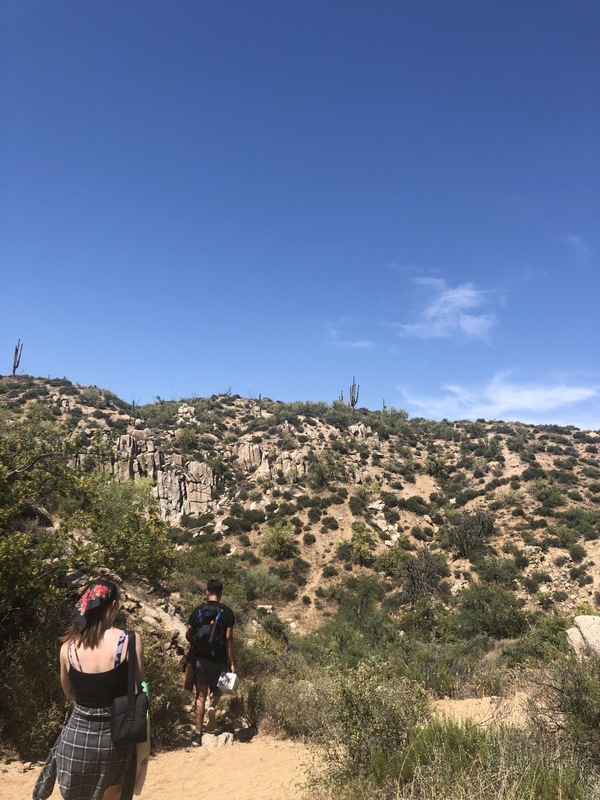
2020-05-11
Once summer hit Arizona and all the clubs and pools remained closed due to the pandemic, my friends and I were forced to get creative. We managed to find several hiking trails outside of Phoenix that led to glorious water (a treasure out here). We would spend hours at the little pools and waterfalls, talking about what we missed from our previous lives. Sometimes we would bring packs of White Claws- a COVID hit, and pretend we were in Vegas at the dayclubs. Back then, everything was a big ‘what if.’ We all thought that by September of 2020 we would be back in classes, moving on with our lives and not giving a second thought to the mayhem the pandemic brought on. We had no idea what the future held, but we were able to escape to our desert oasis and enjoy one another the way we deserved.
 2020-08-05
2020-08-05 2020-04
2020-04 2020-10-20
2020-10-20 March 13, 2020
March 13, 2020 2022-03
2022-03 2020-03-11
2020-03-11 2020-03-11
2020-03-11 2023-02-27
2023-02-27 March 2020
March 2020 2022-08-19
2022-08-19 2020-03-24
2020-03-24 2018-03-11
2018-03-11 2022-10-01
2022-10-01 2013-03-14
2013-03-14 2021-04-18
2021-04-18 2021-08-11
2021-08-11 2021-04-27
2021-04-27 2020-02-18
2020-02-18 2021-06-18
2021-06-18 2020-02-23
2020-02-23 2021-07
2021-07 2021-03-06
2021-03-06 2022-07-01
2022-07-01 2022-06-01
2022-06-01 2022-09-09
2022-09-09 2021-04-12
2021-04-12 2021-11
2021-11 2021-06-09
2021-06-09 2023-01-29
2023-01-29 2021-03-30
2021-03-30 2021-03-12
2021-03-12 2023-02
2023-02 2020-05-11
2020-05-11